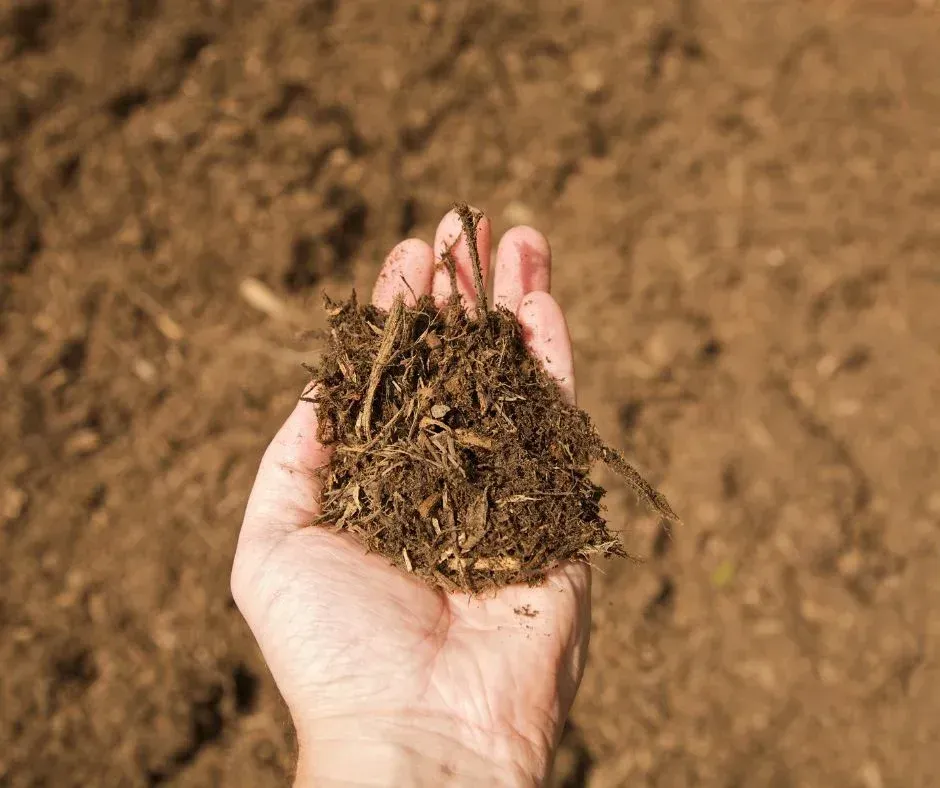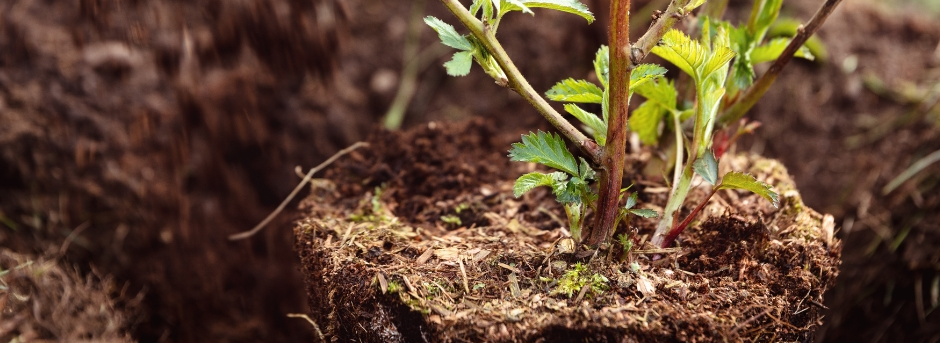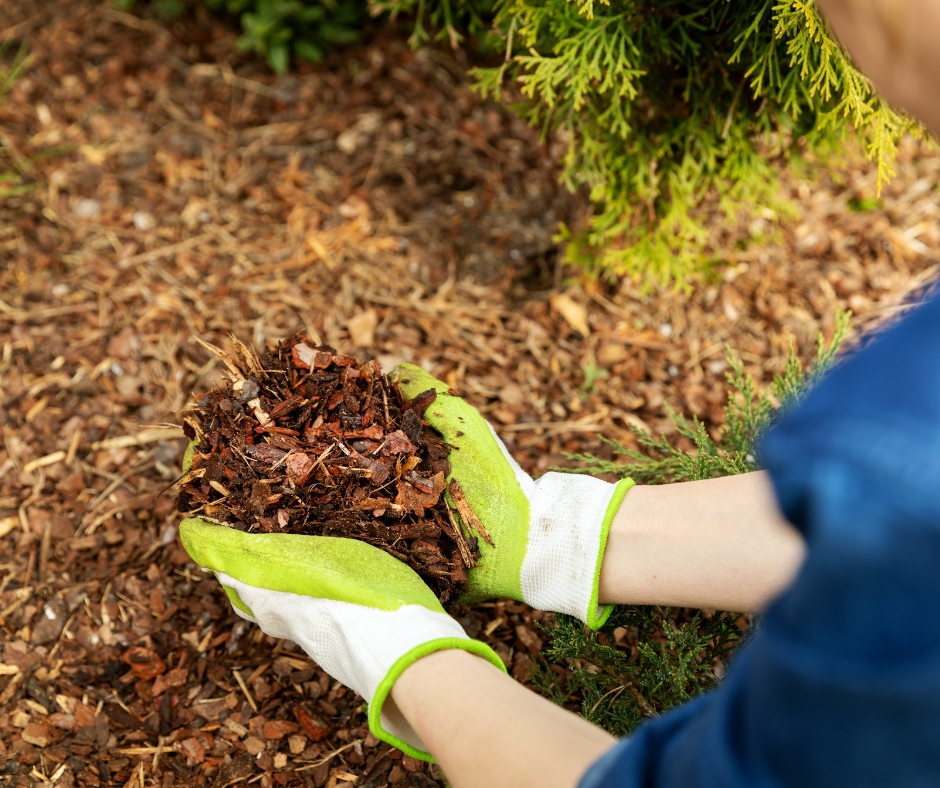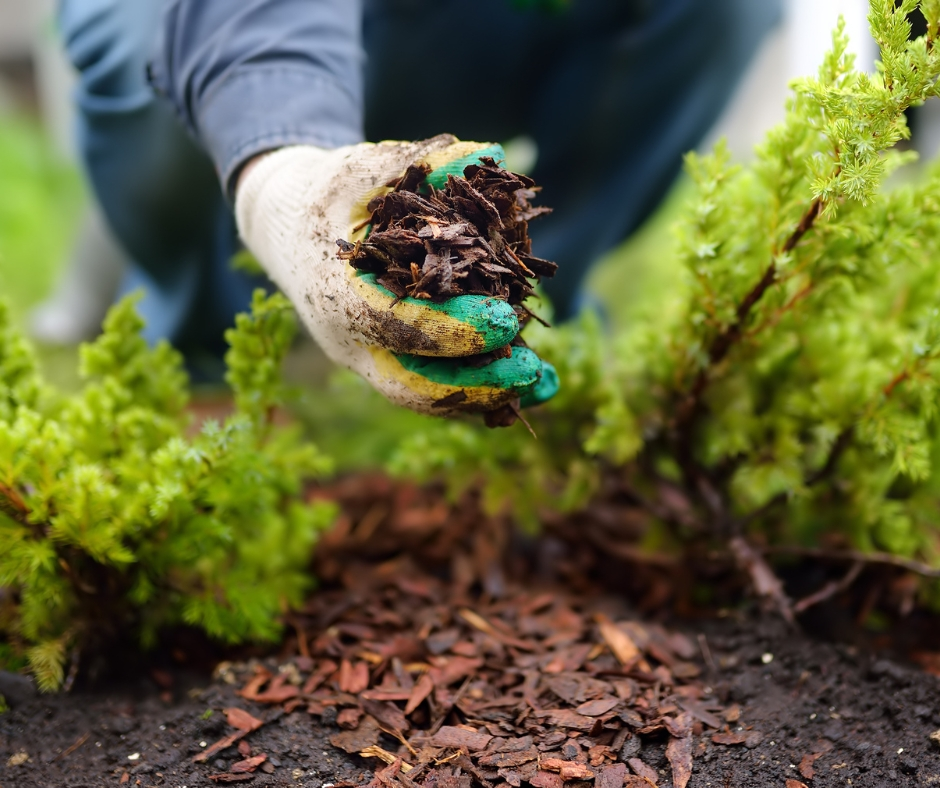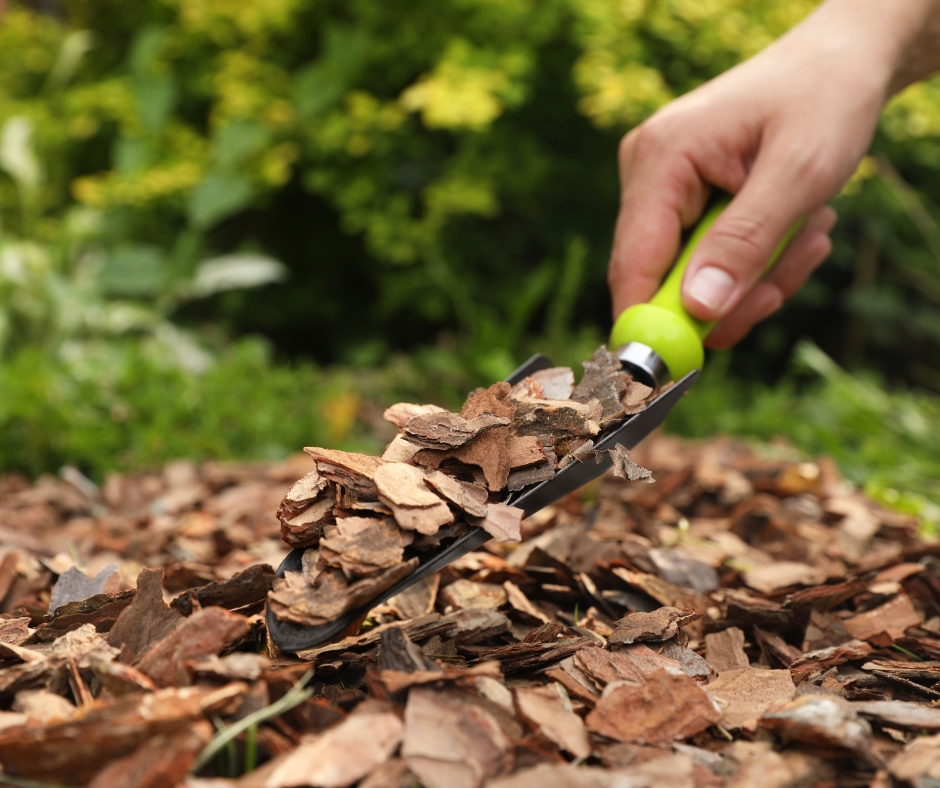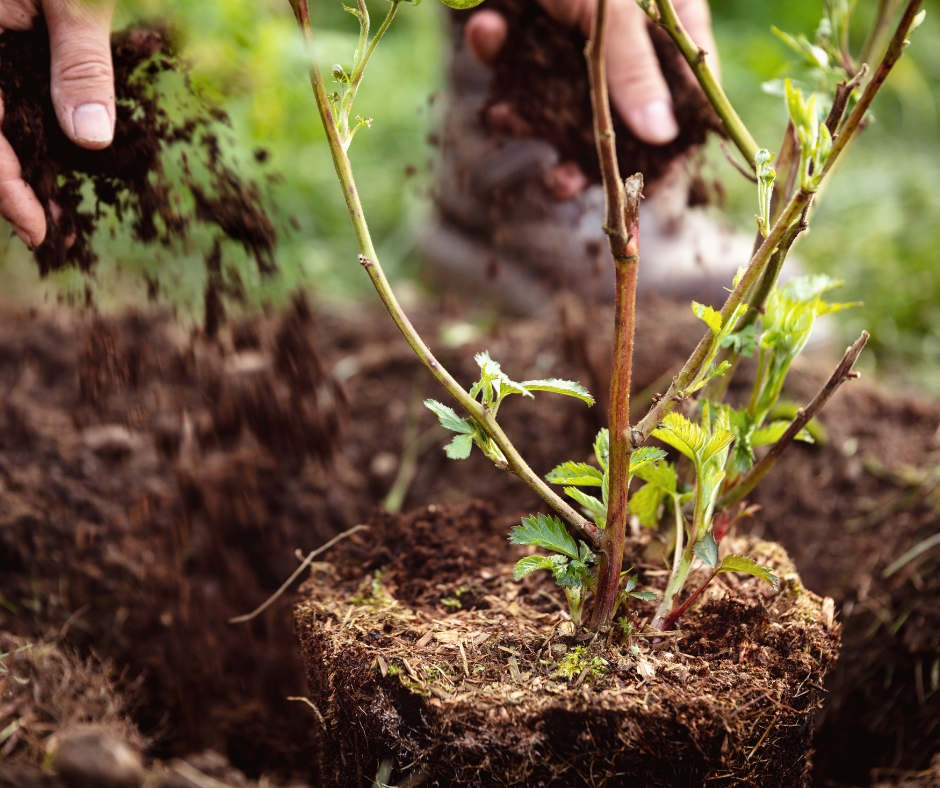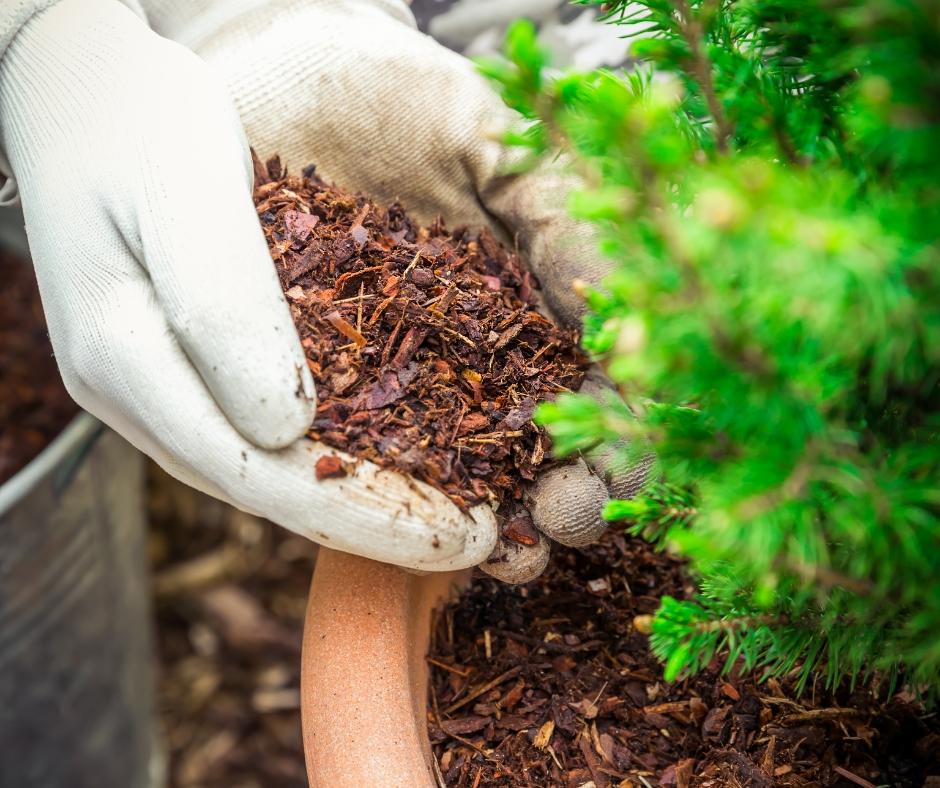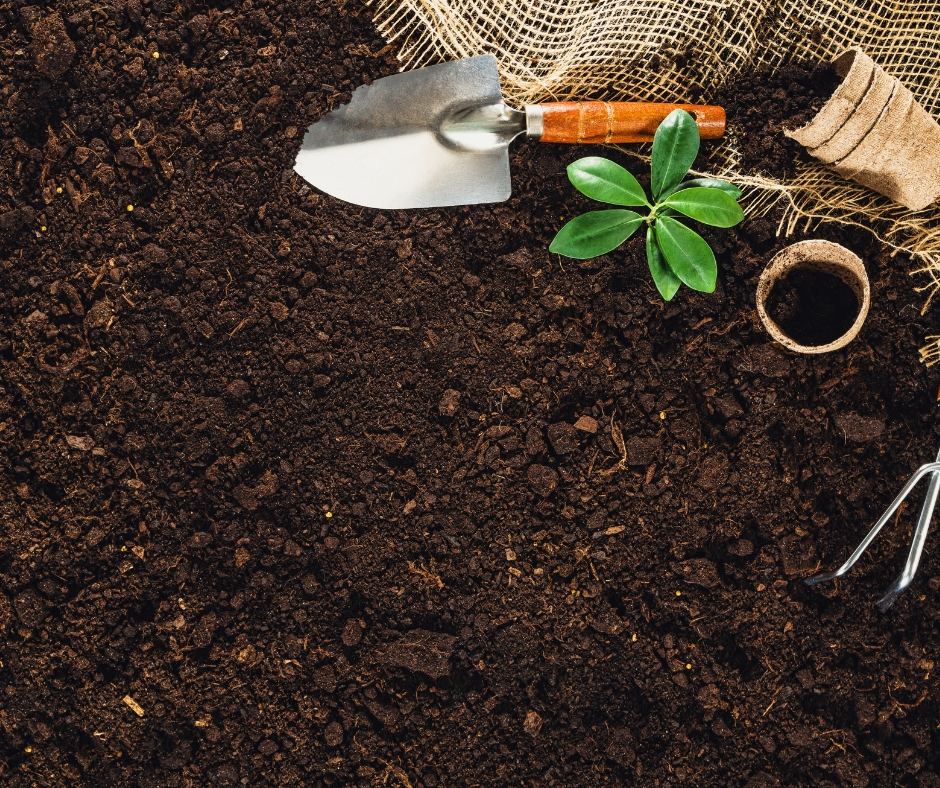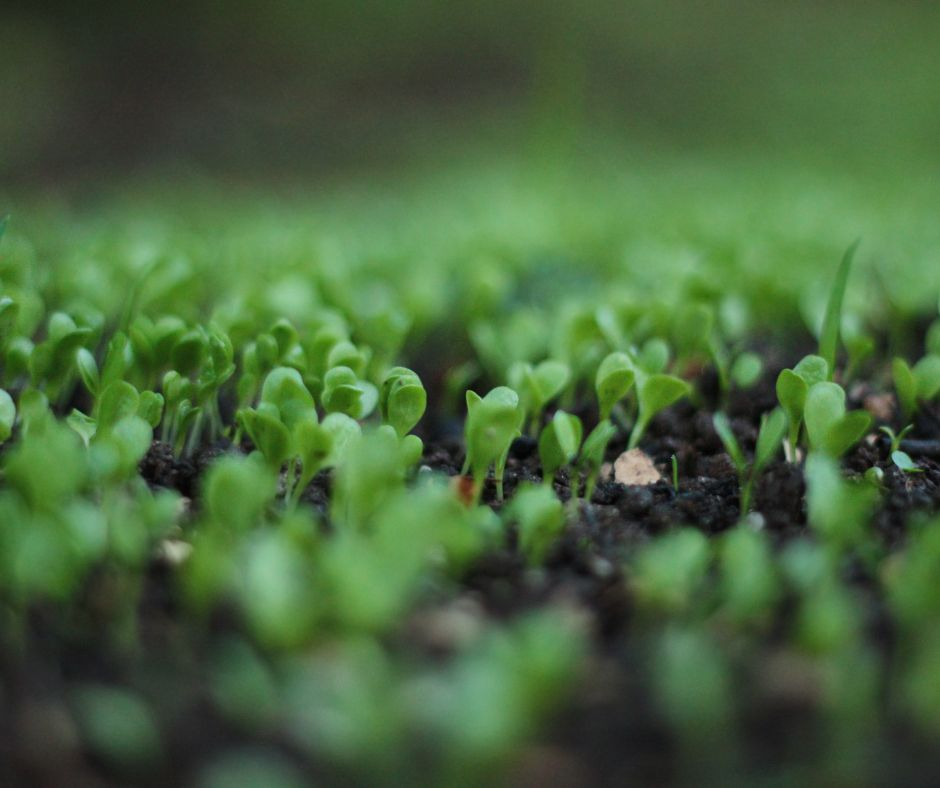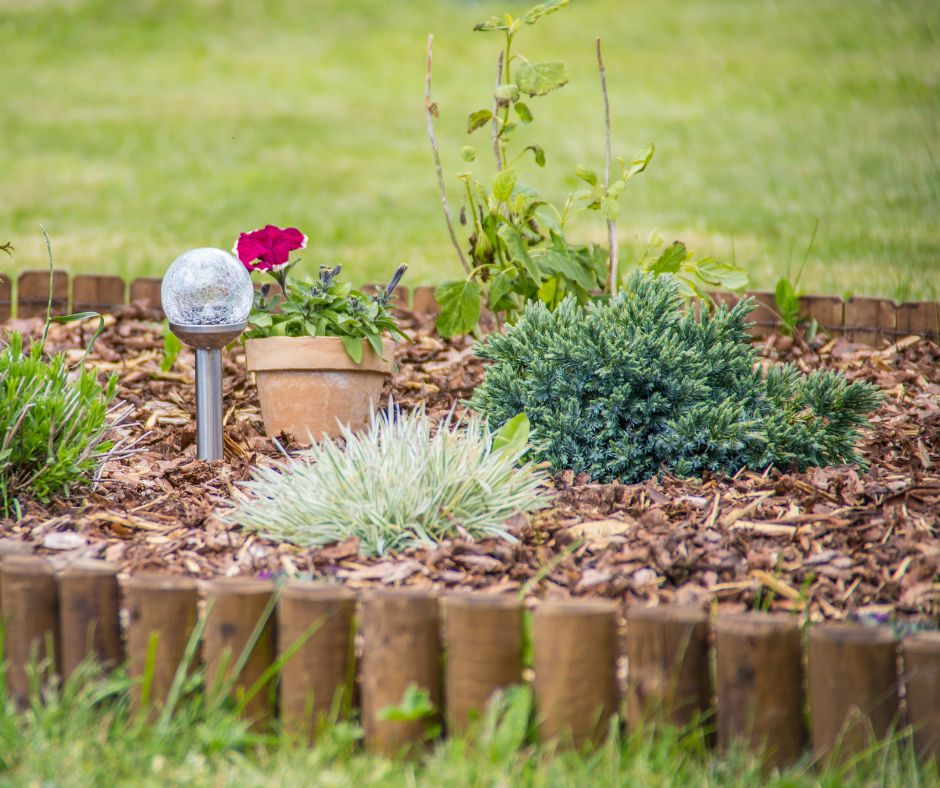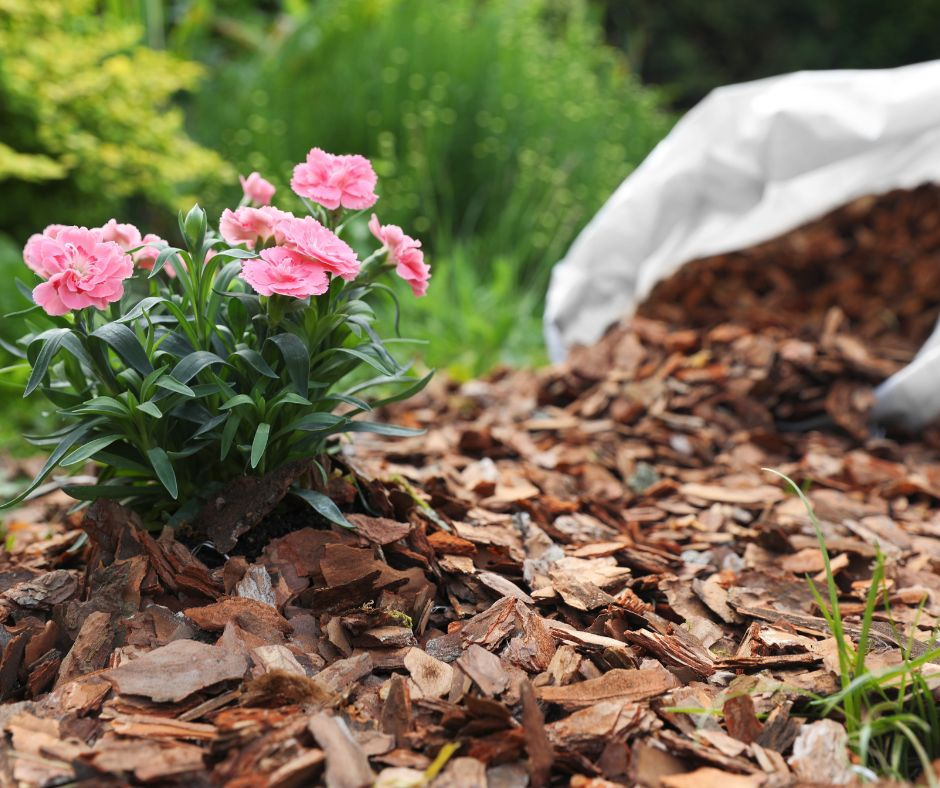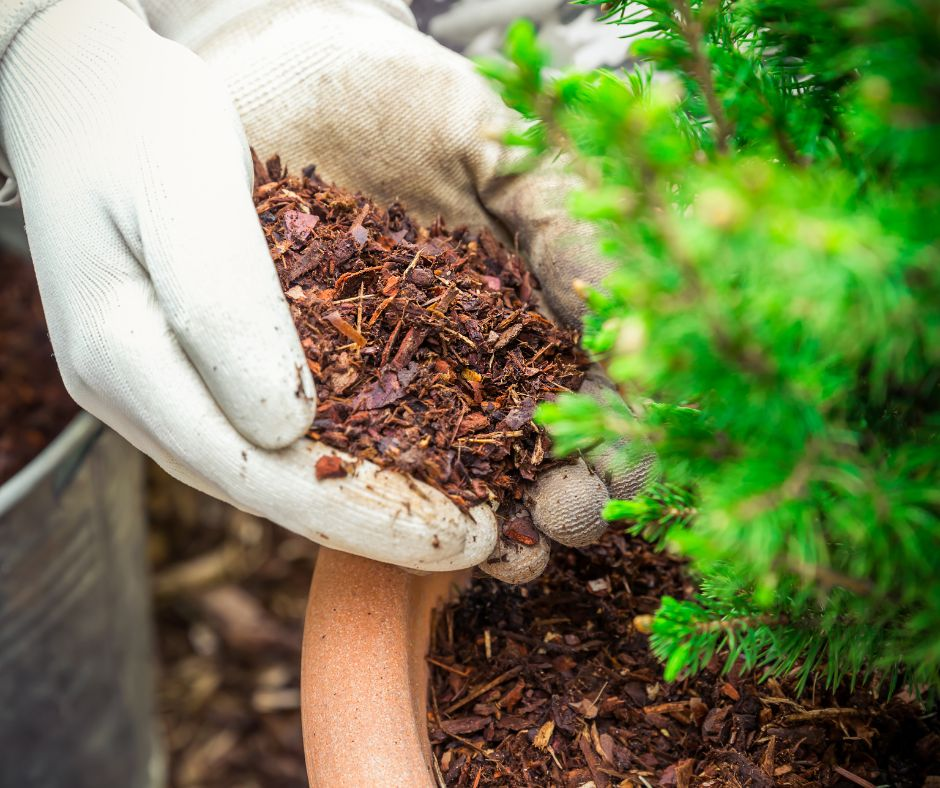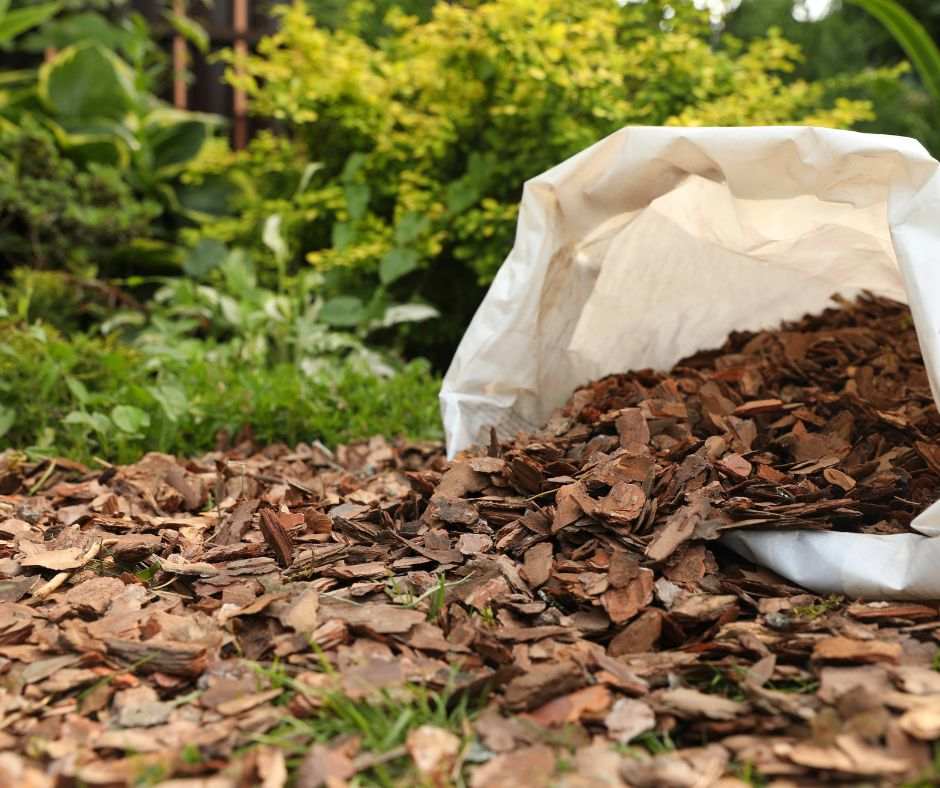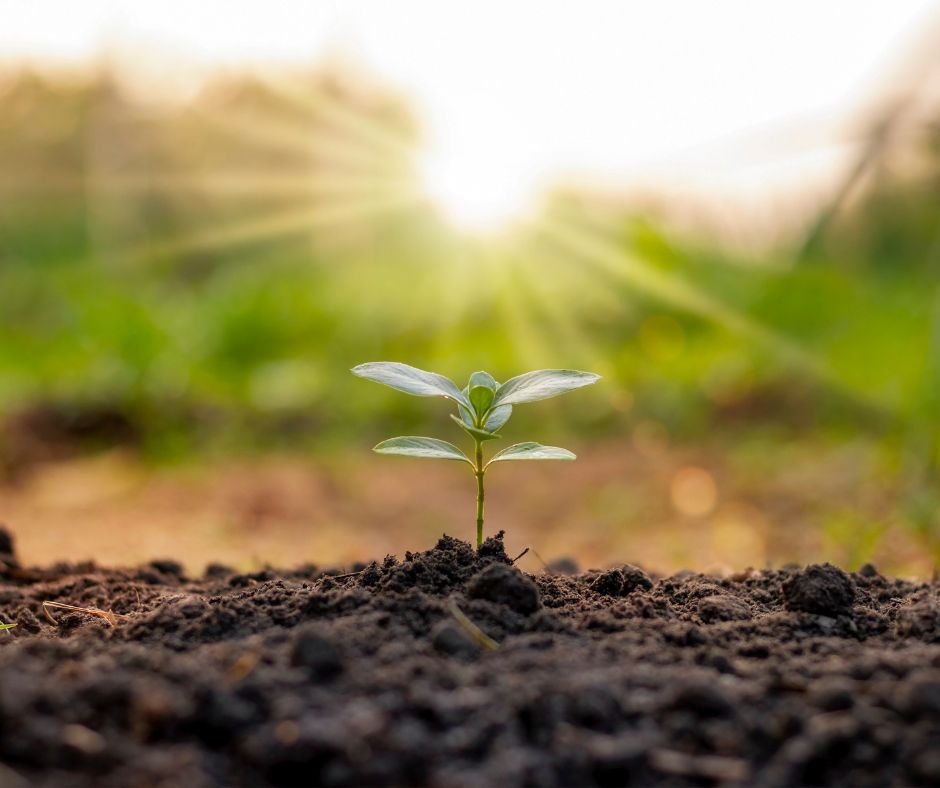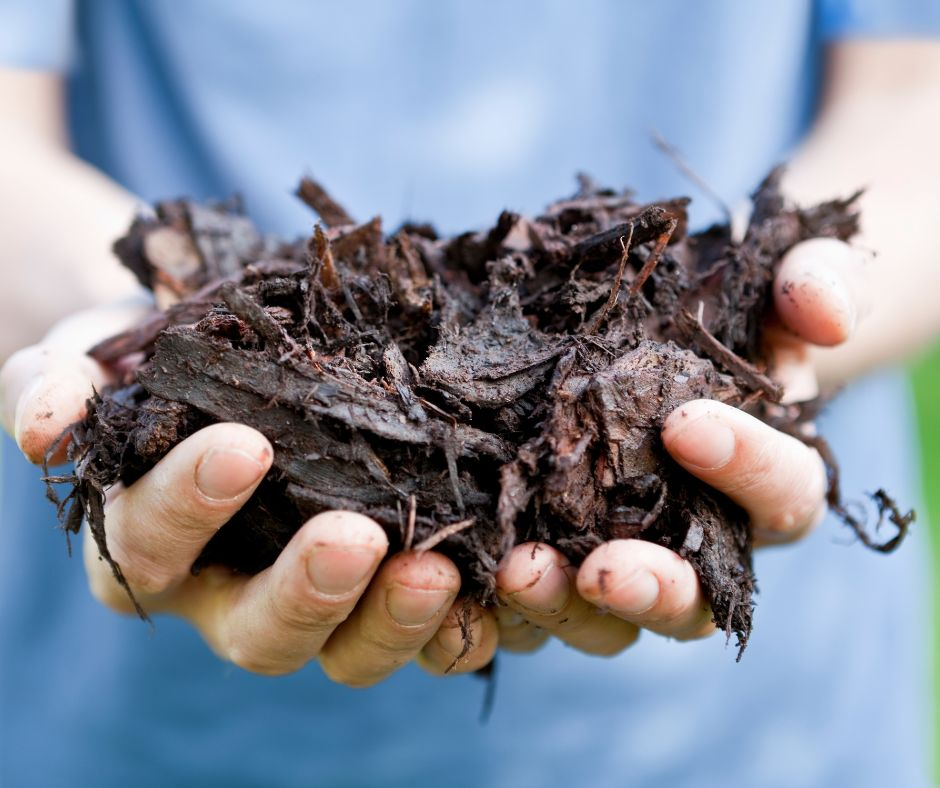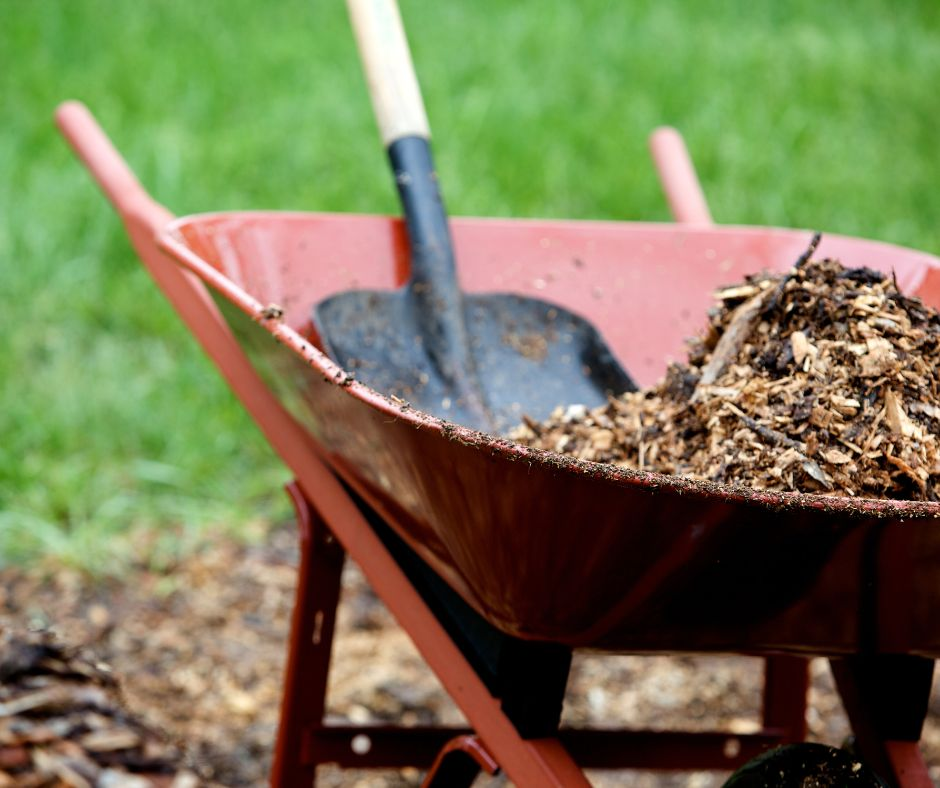Our Blog
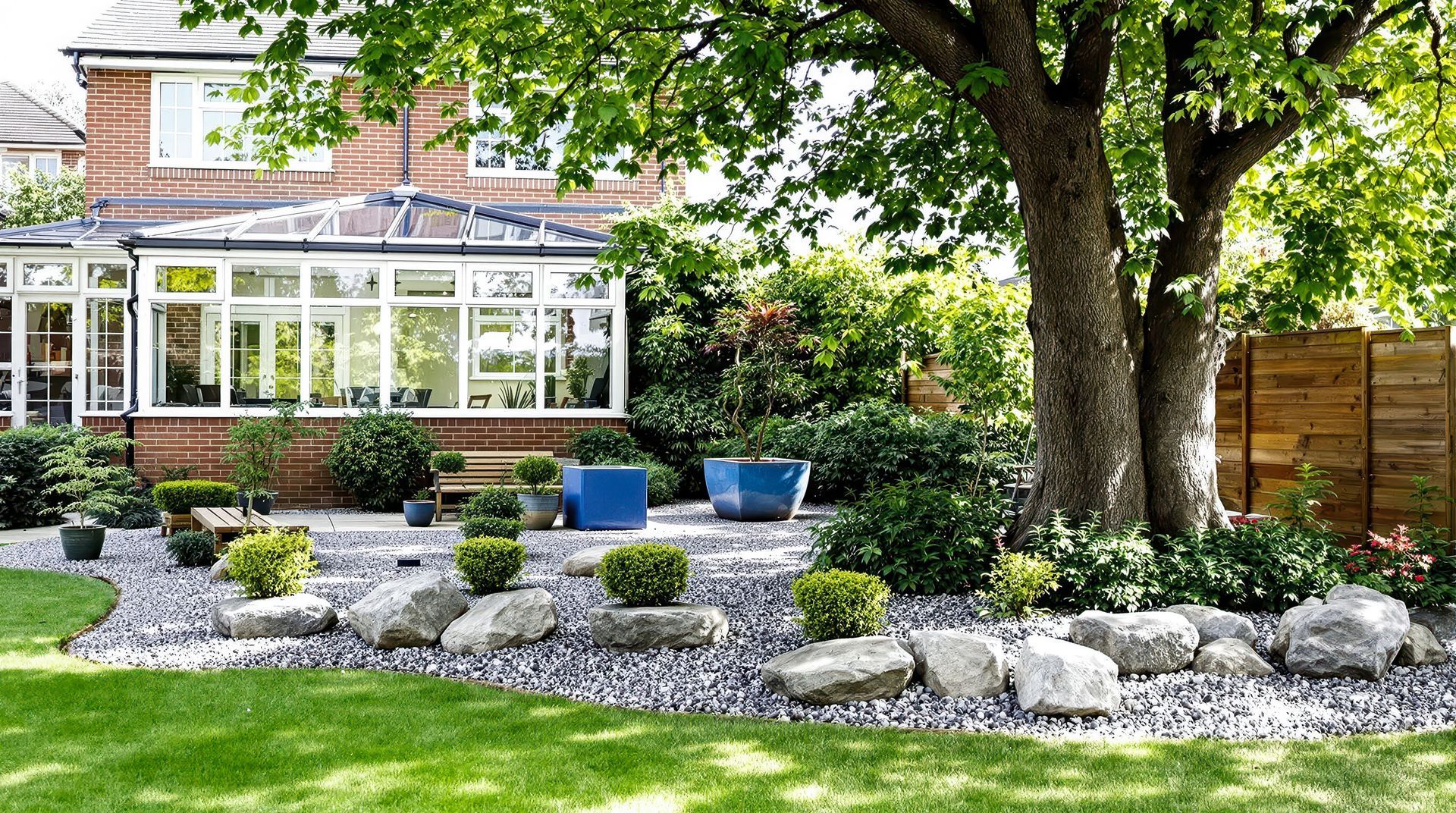
Crushed rock is a durable, low-maintenance material widely used in San Diego landscapes for pathways, garden beds, driveways, and decorative features. While it requires less upkeep than many other materials, regular maintenance ensures that it stays clean, functional, and visually appealing. In this blog post, we’ll share practical tips for maintaining your crushed rock landscape and how to prevent or fix common issues like weed growth and erosion. Why Crushed Rock Needs Maintenance Although crushed rock does not decompose or require watering, it is still exposed to the elements. Over time, weeds can creep in, debris can accumulate, and loose rock can shift or settle. Routine care helps protect your investment and keeps your landscape looking polished. Tips for Keeping Crushed Rock Areas Clean and Attractive 1. Rake Regularly Use a hard-toothed rake to smooth out uneven areas, redistribute rock that may have shifted, and remove surface debris. Raking once every few weeks helps maintain a clean, even appearance. 2. Remove Debris and Organic Material Leaves, twigs, and other debris can build up and create a breeding ground for weeds. Explicit organic material regularly, especially during the fall or after storms, to keep the area tidy and reduce soil buildup. 3. Top Off Low Spots Over time, some rock may migrate or settle. Periodically inspect the area and add fresh crushed rock to maintain consistent depth and appearance. This also helps with drainage and weed suppression. 4. Power Wash or Hose Down When Needed For decorative rock used in high-visibility areas, hosing off dust and dirt can restore the color and freshness of the stone. Use a garden hose with a spray nozzle or a light-pressure power washer. Preventing and Managing Weed Growth Weeds are the most common issue in crushed rock landscapes. They can spoil the clean look of your yard and compete with nearby plants for nutrients and water. 1. Install a Weed Barrier Fabric When laying crushed rock, always start with a high-quality landscape fabric underneath. This creates a physical barrier that blocks weed roots from penetrating while still allowing water to drain through. 2. Apply a Pre-Emergent Herbicide Use a pre-emergent weed control product in early spring to prevent weed seeds from germinating. Be sure to choose a product appropriate for use around ornamental plants if your rock is near garden beds. 3. Spot-Treat or Pull Weeds Promptly Occasional weeds may still appear, especially around the edges or in disturbed areas. Pull them by hand or treat with a targeted herbicide before they spread. Removing them early prevents seed dispersal and saves time later. 4. Maintain Proper Rock Depth A layer of crushed rock that is at least 2 to 3 inches deep provides better weed suppression. If the layer is too thin, light can reach the soil, encouraging weed growth. Preventing and Addressing Erosion Crushed rock can shift or wash away in areas with heavy rainfall or on sloped surfaces. Taking preventive measures will preserve the integrity of your design. 1. Edge the Area with Borders Use edging materials such as metal, wood, concrete, or stone to contain the rock and prevent it from spreading into unwanted areas. Edging also gives pathways and beds a finished, professional look. 2. Compact and Level the Base Before installing crushed rock, ensure the base soil is compacted and level. For driveways or sloped pathways, consider using a mix of crushed rock and fines to create a more stable surface. 3. Add Retaining Features for Slopes In sloped areas, install low retaining walls or terracing to hold rock in place and reduce downhill movement. You can also use jute netting or grid mats beneath the rock for extra stability. 4. Improve Drainage Where Needed If water frequently washes away rock, install drainage channels or dry creek beds to redirect the flow. Proper drainage keeps the rock in place and protects against pooling or flooding. Conclusion Maintaining a crushed rock landscape is relatively simple, but consistent attention is essential to ensure your outdoor space remains clean, attractive, and functional. With a few proactive steps, you can prevent weed growth, minimize erosion, and keep your landscape looking great year-round. At North County Supply, we offer high-quality crushed rock, weed barriers, and expert advice to help you build and maintain your ideal landscape. Stop by or contact us today to learn more about materials and maintenance tips for your next project.
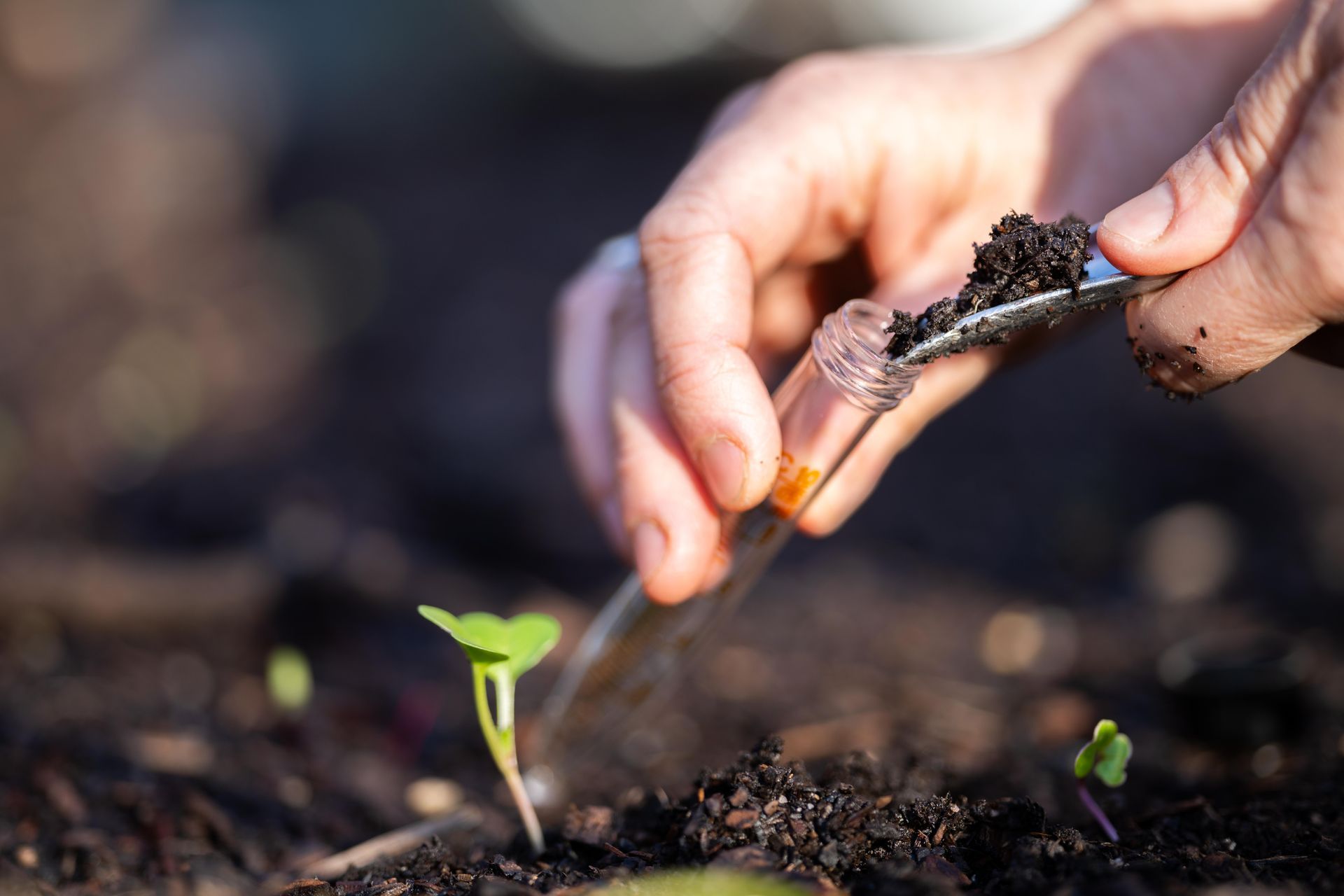
Healthy soil is the foundation of a successful garden. Yet many gardeners skip one of the most essential steps before planting: testing their soil. Soil testing gives you critical information about nutrient levels, pH balance, and overall soil health, helping you make informed decisions that lead to more vigorous plants and better yields. In this blog post, we’ll explain why soil testing is important, how to test your soil at home or professionally, and how to interpret your soil test results. Why Soil Testing Matters Whether you're planting vegetables, flowers, or native landscaping, your soil's composition directly affects plant health. A soil test helps answer essential questions: Does your soil have enough nutrients to support healthy growth? Is the pH level appropriate for the plants you want to grow? Are there any nutrient excesses that could be harmful? Without testing, you're left guessing. You might over-fertilize, underfeed, or plant in unsuitable conditions without even realizing it. Soil testing helps you avoid these common mistakes, saves money on unnecessary products, and promotes environmentally responsible gardening. How to Test Soil at Home or Professionally At-Home Soil Testing Kits DIY soil testing kits are available at garden centers and hardware stores. They provide basic information about pH and nutrient levels like nitrogen, phosphorus, and potassium. Steps to use a home soil test kit: Collect soil samples from several spots in your garden, digging 4 to 6 inches deep. Mix the samples together in a clean container to get an average representation of your garden soil. Follow the test kit instructions , typically involving mixing soil with a solution and comparing the color to a chart. Record your results and compare them with your plant’s nutrient and pH requirements. These tests are affordable and provide quick insights, but they may lack the accuracy and depth of professional testing. Professional Soil Testing For more comprehensive results, consider sending your soil to a professional lab. This is especially helpful if you're establishing a new garden, planting specialty crops, or troubleshooting poor plant performance. How to get your soil professionally tested: Contact a local cooperative extension, university lab, or private soil lab. Use a clean tool to collect multiple samples from your garden. Let the soil air dry and send the sample according to the lab's instructions. Most labs provide a detailed report within one to two weeks, often with recommendations based on your intended plant types. Professional testing evaluates additional elements, such as calcium, magnesium, sulfur, and micronutrients, providing a more comprehensive picture of your soil's health. Interpreting Soil Test Results Once you receive your soil test results, it’s time to put them to use. Most test reports include the following: pH Level The pH scale runs from 0 to 14. Most garden plants prefer a slightly acidic to neutral range (6.0 to 7.0). If the pH is too high (alkaline) or too low (acidic), plants may not absorb nutrients efficiently. Low pH (acidic): Add lime to raise pH. High pH (alkaline): Add sulfur or organic matter to lower pH. Macronutrients Nitrogen (N): Essential for leafy growth. Deficiencies lead to yellowing leaves and stunted growth. Phosphorus (P): Supports root development and flowering. Low levels reduce bloom production. Potassium (K): Aids in overall plant health, drought resistance, and disease prevention. A soil test will indicate whether these are low, adequate, or excessive. Based on the results, you can choose the right type and amount of fertilizer or soil amendment. Micronutrients Professional tests may include levels of iron, manganese, zinc, copper, and boron. While needed in smaller quantities, these elements are still essential for plant health. Organic Matter and Texture Some tests will also assess the percentage of organic matter and soil texture (comprising sand, silt, and clay). This helps determine how well your soil holds moisture and nutrients. Final Thoughts Soil testing is a simple yet powerful step in building a healthy, productive garden. Whether you're growing vegetables, ornamentals, or drought-tolerant landscapes in San Diego, understanding your soil's condition will guide you toward better choices and better results. At North County Supply , we offer quality soil amendments, compost, and mulch to help you act on your test results and build better soil. Need help interpreting your soil report? Our team is happy to point you in the right direction. Contact us or stop by today to learn more.
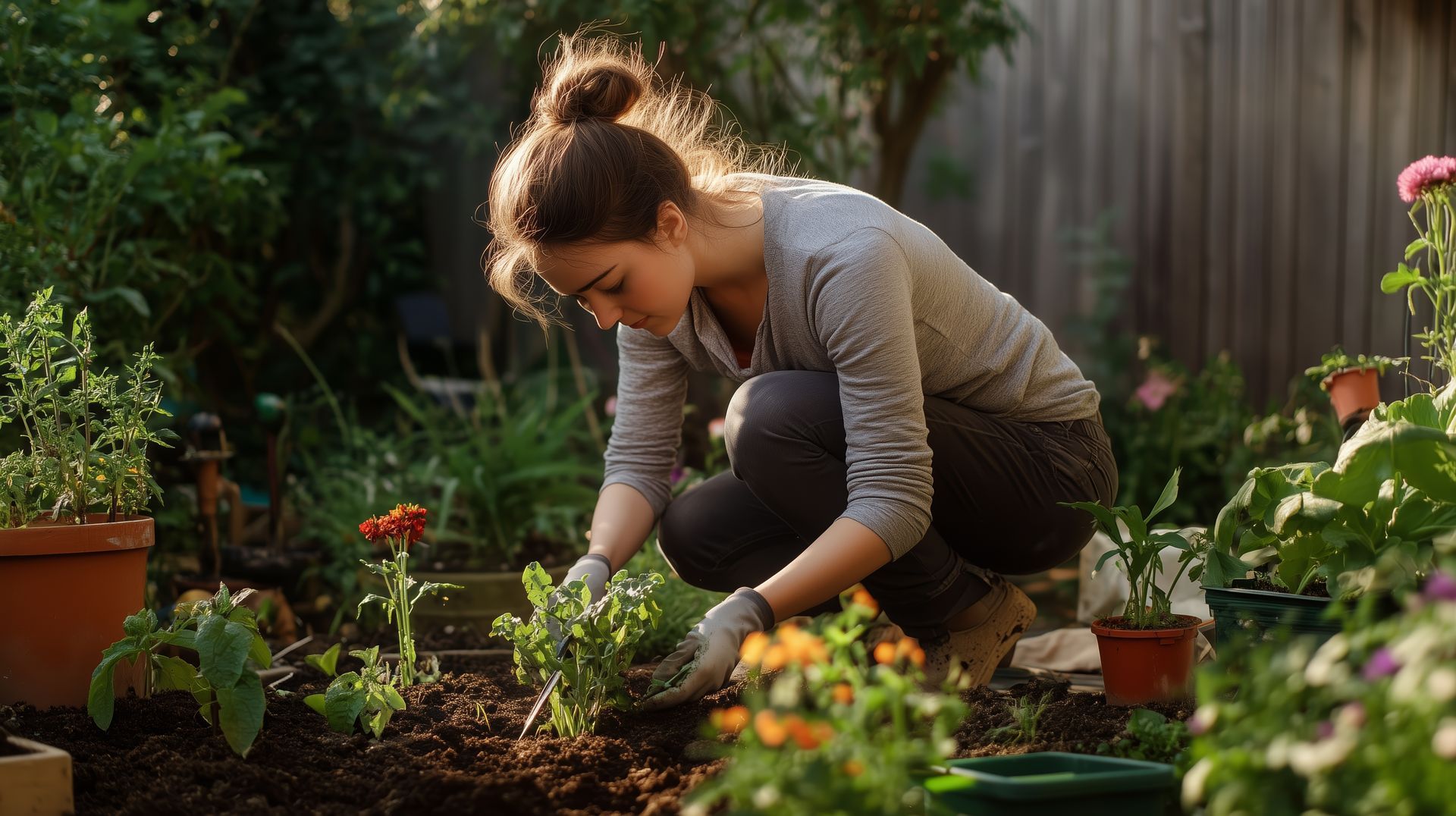
Healthy soil is the foundation of a vibrant and productive garden. Whether you're growing vegetables, flowers, or drought-tolerant plants, improving your soil quality can make all the difference in plant health, resilience, and overall garden success. In this blog post, we’ll explore proven methods to boost soil fertility, the benefits of organic amendments and composting, and tips for maintaining healthy soil structure in your San Diego landscape. Why Soil Quality Matters Soil does more than hold up your plants—it provides them with essential nutrients, water, oxygen, and a thriving ecosystem of beneficial organisms. Poor-quality soil can lead to weak growth, nutrient deficiencies, pest problems, and wasted time and money. But with the right techniques, you can turn tired, compacted, or nutrient-poor soil into a thriving garden bed. 1. Methods to Improve Soil Fertility Improving soil fertility means increasing the nutrient content available to plants and enhancing the soil's ability to hold moisture and support microbial life. Here are some effective ways to do just that: Add Organic Matter Incorporating organic matter is one of the best ways to boost soil fertility. Organic materials, such as compost, aged manure, or leaf mold, break down slowly and release nutrients over time. Tip: Mix 2–4 inches of organic matter into the top 6–8 inches of soil before planting. Repeat this process once or twice a year to maintain fertility. Rotate Crops If you grow vegetables or annuals, rotating crops each season can help prevent nutrient depletion and reduce the risk of soil-borne diseases. Example: Avoid planting tomatoes in the same spot each year. Instead, rotate with legumes like beans or peas, which add nitrogen to the soil. Use Cover Crops (Green Manure) Cover crops like clover, vetch, or rye are grown specifically to improve soil health. They help fix nitrogen, prevent erosion, and add organic material when tilled back into the soil. Best Time: Plant cover crops during the off-season (fall or winter in San Diego) and till before spring planting. 2. Benefits of Organic Amendments and Composting Organic amendments and compost provide a slow, steady release of nutrients, improve soil structure, and promote a healthy soil ecosystem. Here’s why they’re so valuable: Compost Compost is decomposed organic matter that enriches soil with essential nutrients and beneficial microbes. It improves the texture of both clay and sandy soils, making it easier for plant roots to grow. Benefits: Adds nutrients like nitrogen, phosphorus, and potassium. Improves soil aeration and water retention. Encourages earthworm activity and beneficial microbes. Aged Manure Properly aged (or composted) animal manure is a powerful soil amendment that is rich in nutrients and organic material. Caution: Always use well-aged manure to avoid burning plants and introducing pathogens. Avoid using pet waste or fresh manure. Mulch as an Amendment Organic mulches like wood chips and straw slowly break down and contribute to soil health. Over time, they act as a natural compost layer while controlling weeds and conserving moisture. Tip: Top-dress beds with 2–3 inches of mulch and allow it to naturally integrate into the soil. 3. Tips for Maintaining Healthy Soil Structure Good soil structure allows air and water to flow freely while supporting root development. Poor structure—often caused by compaction or overworking the soil—can lead to drainage problems and root stress. Avoid Over-Tilling Excessive tilling breaks up soil aggregates and harms beneficial organisms. Use tilling sparingly and only when necessary. Alternative: Consider no-till or low-till gardening methods that maintain soil structure and reduce disturbance. Prevent Soil Compaction Walking on garden beds can compress the soil, limiting root growth and water absorption. Solution: Create designated pathways and use stepping stones to avoid walking directly in growing areas. Keep Soil Covered Bare soil is vulnerable to erosion, drying out, and weed invasion. Cover it with mulch, plants, or a living ground cover to protect and nourish the soil. Tip: In between planting seasons, use a layer of mulch or a cover crop to protect soil health. Conclusion Healthy soil is the key to a thriving, low-maintenance garden. By incorporating organic matter, rotating crops, and using compost and mulch, you’ll improve soil fertility and structure naturally. Whether you’re starting a new garden or revitalizing an existing one, these soil-improving techniques will create a strong foundation for years of beautiful growth. At North County Supply , we offer high-quality soil amendments, compost, and mulch to help San Diego gardeners build and maintain healthy soil. Stop by or give us a call to learn more about the best products for your garden!
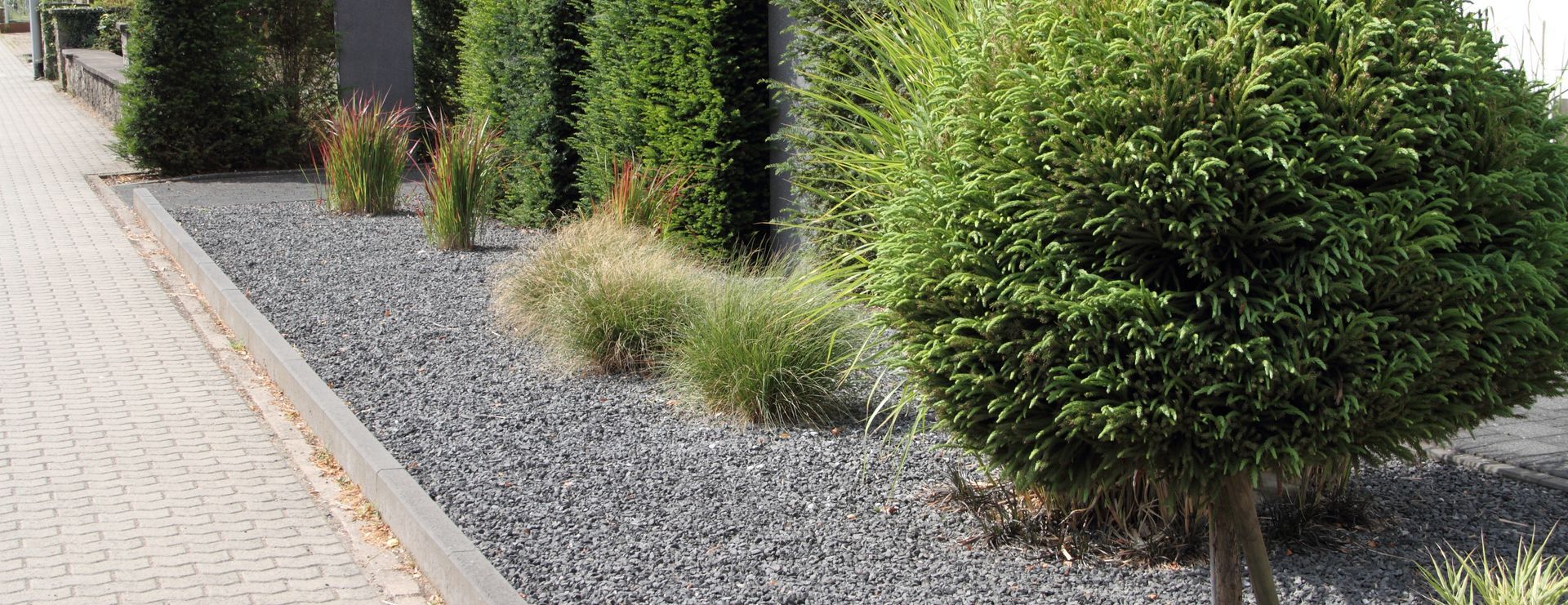
When it comes to landscaping, choosing the right materials is essential for both aesthetic appeal and cost-effectiveness. While options like wood mulch, pavers, and sod can create beautiful outdoor spaces, aggregate—such as crushed rock, gravel, and decomposed granite—offers a budget-friendly and long-lasting alternative. In this blog, we’ll compare the cost of aggregate to other landscaping materials and explore its long-term savings and benefits, making it a smart investment for homeowners and businesses alike.
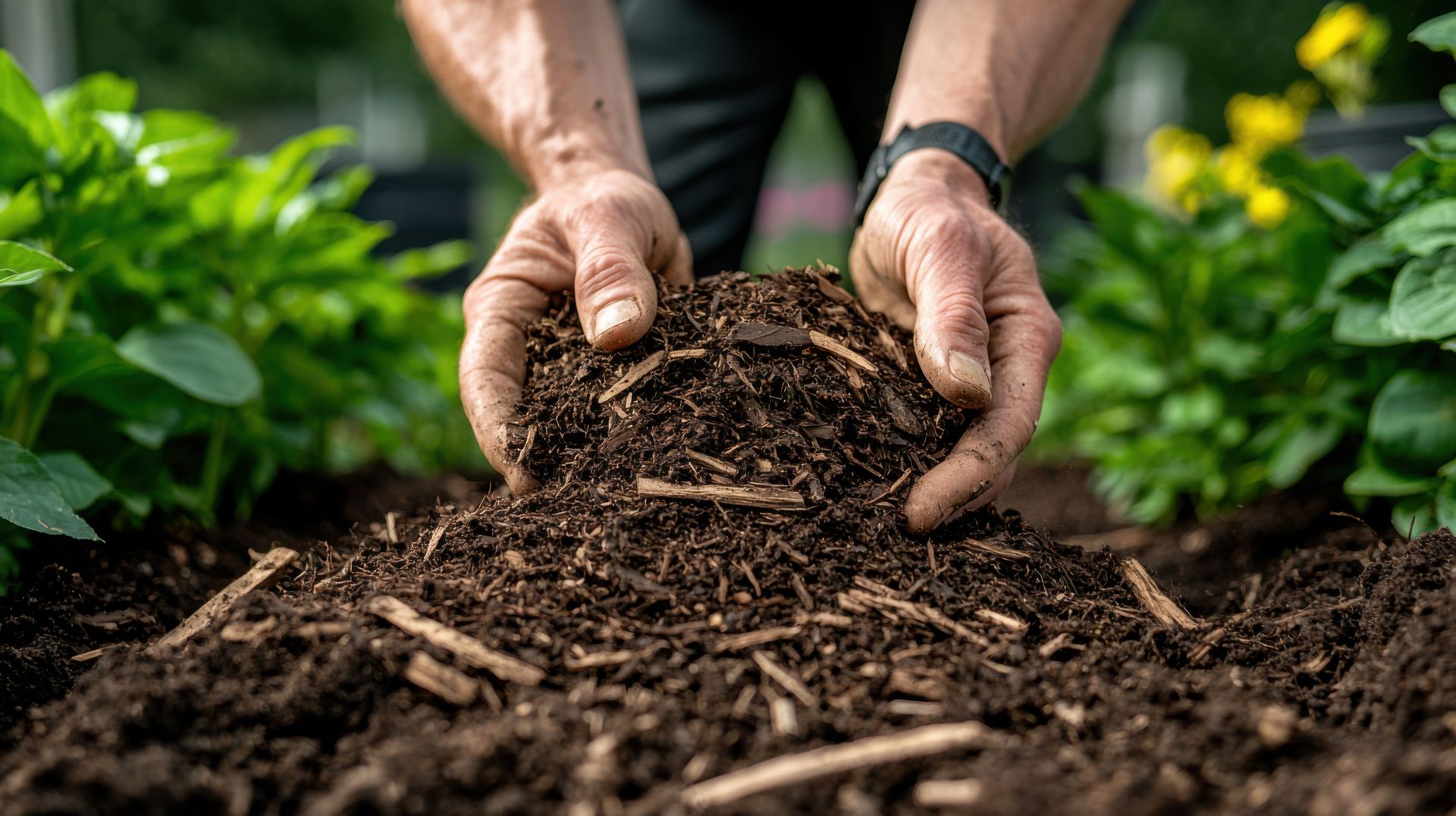
Mulch is a game-changer for any garden, offering benefits like moisture retention, weed control, and soil improvement. However, not all mulch is created equal, and choosing the right type for your San Diego garden requires careful consideration of the local climate, your plant’s needs, and your long-term landscaping goals. We’ll compare organic and inorganic mulch and provide tips to help you select the best option for your unique garden. Organic vs. Inorganic Mulch: What's the Difference? Organic Mulch Organic mulch is made from natural materials that decompose over time, adding nutrients to the soil. Examples include wood chips, bark, straw, grass clippings, and compost. Advantages: Soil Enrichment: As it breaks down, organic mulch improves soil structure and fertility, promoting healthier plants. Eco-Friendly: Organic mulch recycles natural materials and reduces waste. Wide Availability: Easily sourced from garden centers or even your yard waste. Drawbacks: Maintenance: Requires replenishment as it decomposes. Pest Attraction: Certain types, like straw or grass clippings, can attract pests if not properly managed. Best For: Flower beds, vegetable gardens, and areas where soil health is prioritized. Inorganic Mulch Inorganic mulch includes gravel, stones, rubber mulch, and landscape fabric. These materials do not decompose, making them a more permanent solution. Advantages: Low Maintenance: Inorganic mulch doesn’t break down, meaning less upkeep over time. Durability: Ideal for high-traffic areas or regions prone to harsh weather. Aesthetic Appeal: Comes in various colors and sizes, perfect for modern or minimalist garden designs. Drawbacks: No Soil Improvement: Unlike organic mulch, inorganic materials don’t add nutrients to the soil. Cost: Can be more expensive initially compared to organic options. Heat Retention: Some inorganic materials, like rubber mulch, can retain heat, potentially stressing plants in hot climates like San Diego. Best For: Pathways, rock gardens, xeriscaping, and decorative purposes. Tips for Selecting Mulch Based on San Diego’s Climate and Plant Needs San Diego’s climate is characterized by mild winters, warm summers, and minimal rainfall, making mulch a vital tool for conserving water and maintaining healthy soil. Here are some tips to guide your choice: 1. Consider Water Conservation In San Diego's dry climate, retaining soil moisture is crucial. Organic mulch, such as bark or wood chips, works well in garden beds to keep the soil cool and prevent evaporation. For drought-tolerant landscaping, gravel or decorative stones can complement succulents and other xeriscape plants while reducing water needs. 2. Match Mulch to Your Plants Vegetable Gardens: Opt for organic mulch like straw or compost. These materials break down quickly, enriching the soil and benefiting nutrient-hungry crops. Flower Beds: Use shredded bark or wood chips to maintain a polished look and suppress weeds. These mulches also decompose slowly, providing long-lasting benefits. Native and Drought-Tolerant Plants: Gravel or decomposed granite perfectly matches succulents and drought-resistant plants, offering excellent drainage and a natural aesthetic. 3. Account for Heat Retention Some mulches, like rubber or dark-colored stones, can absorb and retain heat, which may stress your plants during San Diego’s hotter months. Choose lighter-colored stones or organic mulch to reflect heat and cool your soil. 4. Balance Aesthetics and Functionality While appearance matters, functionality should guide your mulch choice. For example, decorative rock might look stunning in a modern garden, but it won’t provide the soil-enriching benefits of organic mulch. Consider combining organic and inorganic mulch for different landscape areas to achieve beauty and functionality. 5. Plan for Maintenance If you prefer a low-maintenance garden, inorganic mulch like landscape fabric covered with gravel is a great option for weed suppression. However, if you’re willing to invest time in replenishing your mulch, organic materials offer greater benefits for soil health. Conclusion Choosing the right mulch for your San Diego garden can significantly impact its health and appearance. Organic mulch is ideal for enriching the soil and supporting plant growth, while inorganic mulch offers durability and low maintenance, making it perfect for decorative or high-traffic areas. By considering your local climate, plant needs, and long-term goals, you can make an informed decision that enhances the beauty and sustainability of your garden. Ready to start mulching? Contact North County Supply for a wide selection of high-quality organic and inorganic mulch options tailored to San Diego's unique climate and landscaping needs. Your perfect garden is just a layer of mulch away!

Crushed rock is a versatile and durable material that can transform the look and functionality of any landscape. Crushed rock offers numerous advantages, whether you're designing a low-maintenance garden, creating pathways, or building hardscape features. In this blog post, we’ll explore the key benefits of using crushed rock in your landscape design, such as its durability, low maintenance requirements, and aesthetic appeal. We'll also highlight real-world examples of successful landscaping projects that have utilized crushed rock effectively. 1. Durability One of the standout benefits of using crushed rock in landscape design is its durability. Unlike organic materials like wood mulch or grass, crushed rock is highly resistant to weather conditions, erosion, and the wear and tear of foot traffic. This makes it ideal for pathways, driveways, and high-traffic areas. Long-Lasting: Crushed rock doesn’t decompose over time, unlike organic mulch, which requires regular replenishment. Once installed, it can last for years with minimal upkeep. Weather Resistant: I t holds up well in both wet and dry climates, resisting water runoff and helping to prevent soil erosion. Its durability ensures it maintains its structure, even after heavy rains or scorching heat. 2. Low Maintenance Crushed rock is a low-maintenance option that significantly reduces the time and effort required to care for your landscape. Once laid down, it needs little attention compared to lawns, flower beds, or other landscape features. Weed Control: When installed properly with a weed barrier underneath, crushed rock suppresses weeds by blocking sunlight, reducing the need for chemical weed control or regular weeding. No Watering Required: Unlike grass or plants, crushed rock doesn’t need watering, making it an excellent choice for drought-prone areas or homeowners looking to reduce water usage. Minimal Upkeep: Crushed rock doesn’t need mowing, trimming, or regular fertilizing. Occasionally, you may need to rake it to smooth the surface; otherwise, it remains largely maintenance-free. 3. Aesthetic Appeal Crushed rock comes in various colors, sizes, and textures, allowing you to customize the look of your landscape. From sleek and modern designs to rustic, natural settings, a crushed rock option fits any style. Color Variety: Crushed rock is available in shades ranging from earthy browns and grays to striking whites and vibrant reds. This versatility lets you complement or contrast your existing landscape design. Texture and Size Options: You can choose from fine gravel for smooth walkways, larger stones for decorative borders, or a mix of sizes to create texture and visual interest. Complementing Plants: Crushed rock pairs beautifully with xeriscaping or drought-tolerant plants like succulents, cacti, or ornamental grasses. It provides a clean and modern backdrop that enhances the natural beauty of the plants without competing for attention. Conclusion Crushed rock is a durable, low-maintenance, and visually appealing option that can elevate any landscape design. Whether you're looking to create a long-lasting pathway, reduce maintenance in your garden, or add texture and contrast to your outdoor space, crushed rock offers a range of benefits that make it an excellent choice for residential and commercial landscapes. You can achieve a beautiful, sustainable, and functional outdoor space with minimal effort by incorporating crushed rock into your design. If you're ready to explore the possibilities of using crushed rock in your landscape, contact North County Supply for expert advice and high-quality materials to start your next project!
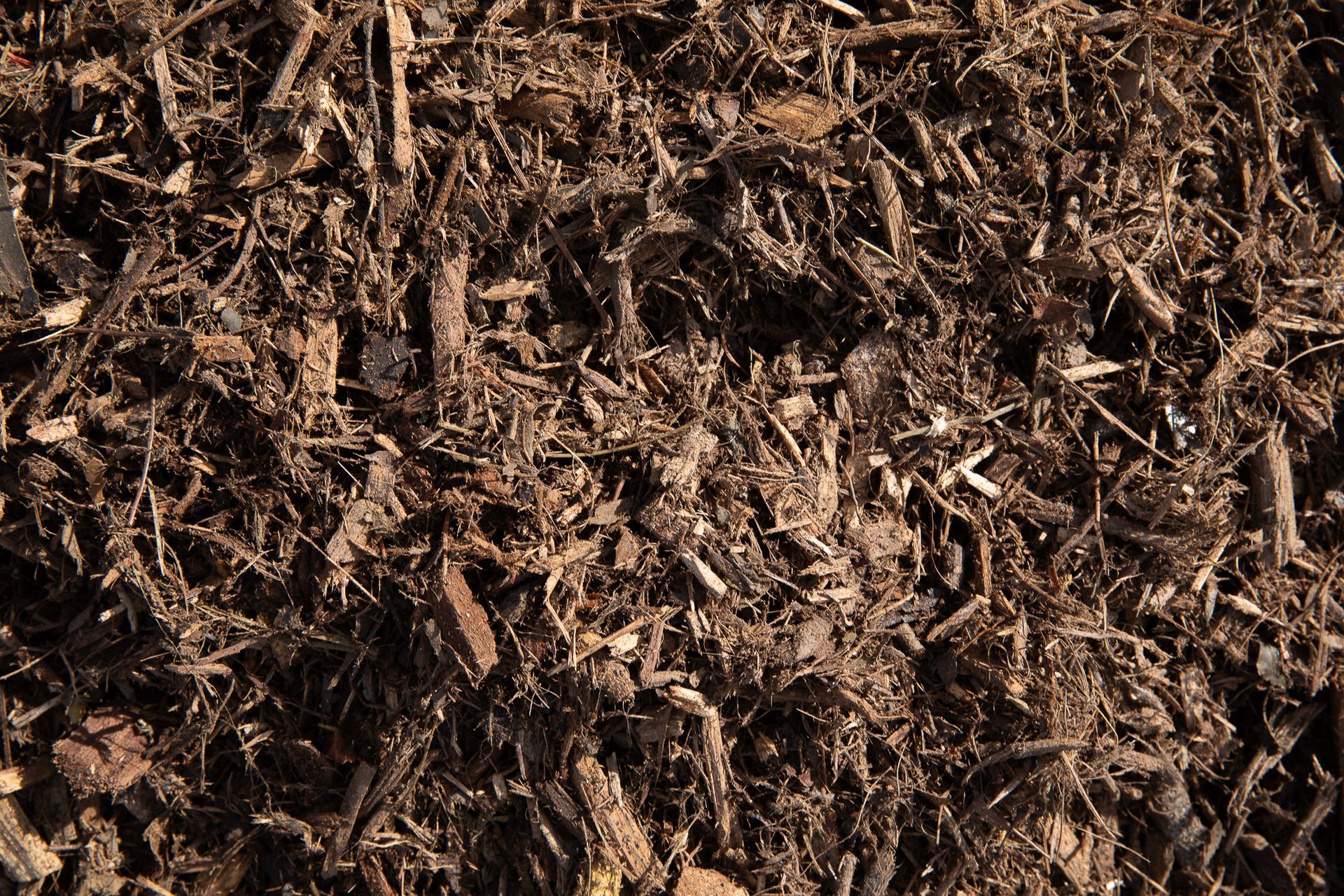
Mulching is one of the most effective ways to improve the health and appearance of your garden, but to get the best results, it's essential to apply mulch correctly. In this blog post, we'll provide a step-by-step guide to mulching and highlight some common mistakes to avoid, ensuring your garden thrives. Step-by-Step Guide to Mulching Step 1: Choose the Right Mulch The first step to successful mulching is selecting the right mulch for your garden. Consider the following factors: Purpose: Determine whether you need mulch for moisture retention, weed control, aesthetic appeal, or a combination. Type: Organic mulches (like wood chips, bark, straw, or compost) are great for improving soil health, while inorganic mulches (such as gravel, stones, or landscape fabric) are ideal for long-term weed control and areas with heavy foot traffic. Step 2: Prepare the Area Before applying mulch, it's crucial to prepare the area properly: Weed Removal: Remove any existing weeds by hand or with a hoe. Applying mulch over weeds will be less effective, as some resilient weeds can push through the mulch layer. Soil Preparation: Loosen the soil with a rake or garden fork, and, if needed, add compost or other soil amendments to improve soil quality. Edging: Use an edging tool or spade to create a clear edge around the mulching area. This helps keep the mulch contained and prevents it from spilling into unwanted areas. Step 3: Apply the Mulch Once the area is prepared, it's time to apply the mulch: Layer Thickness: Spread mulch evenly over the soil surface. A layer of 2-4 inches is generally recommended. Thicker layers are suitable for weed control, but avoid going overboard as too much mulch can suffocate plant roots. Avoid Mulch Volcanoes: When mulching around trees and shrubs, avoid piling the mulch up against the base of the plant (a practice known as creating "mulch volcanoes"). Instead, keep the mulch 2-3 inches away from the trunk or stem to prevent moisture buildup and rot. Smooth and Level: Use a rake or your hands to smooth and level the mulch, ensuring even coverage. This helps create a uniform appearance and prevents water from pooling in certain areas. Step 4: Water the Mulch After applying the mulch, water it thoroughly to help it settle into place. This also helps to start the decomposition process for organic mulches and reduces the risk of mulch blowing away in windy conditions. Step 5: Maintain the Mulch To keep your mulch effective, regular maintenance is key: Replenish as Needed: Organic mulch will break down over time, so you'll need to add a fresh layer every year or as needed to maintain the desired thickness. Inspect for Pests: While mulch is generally beneficial, it can sometimes attract pests like termites or rodents. Check your mulch periodically and address any pest issues promptly. Fluff the Mulch: Mulch can become compacted over time. Fluffing it with a rake or garden fork helps improve air circulation and maintain its effectiveness. Common Mistakes to Avoid When Applying Mulch To ensure your mulching efforts are successful, avoid these common mistakes: Using the Wrong Type of Mulch: Not all mulch is created equal. Using the wrong type for your garden needs can lead to poor results. For example, using fine mulch in a windy area can result in it being blown away, while coarse mulch may not retain adequate moisture for delicate plants. Applying Too Much Mulch: While a thick layer of mulch can effectively control weeds, too much can suffocate plant roots, leading to poor growth or even plant death. Stick to the recommended 2-4 inches. Mulch Volcanoes: Piling mulch against tree trunks or plant stems can lead to moisture buildup and rot. Always leave space around the base of plants. Ignoring Soil Preparation: Mulching over compacted or poor-quality soil will not yield the best results. Prepare your soil before applying mulch. Neglecting Maintenance: Mulch needs to be maintained to stay effective. Failing to replenish or fluff mulch can reduce its benefits over time. Conclusion Applying mulch properly is key to maximizing its benefits in your garden. By following this step-by-step guide and avoiding common mistakes, you can enhance the health and appearance of your plants while reducing maintenance and water usage. Whether you're using mulch to retain moisture, control weeds, or improve soil health, applying it correctly will ensure your garden thrives for future seasons.
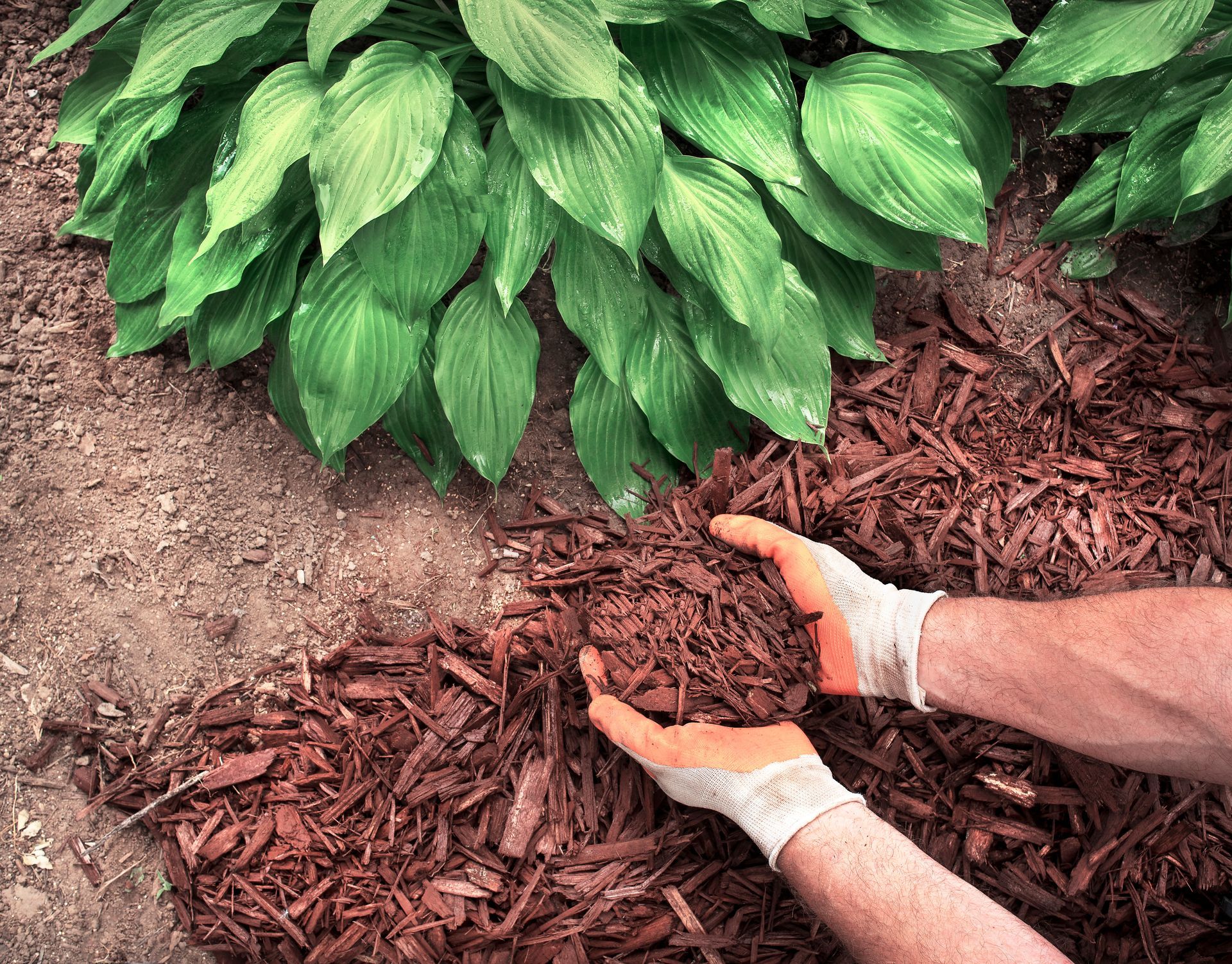
Mulching is a crucial practice in landscaping and gardening that offers numerous benefits beyond just enhancing your garden's visual appeal. By understanding the various advantages of mulching and the different types available, you can optimize your garden's health and vitality. In this blog post, we'll explore how mulch helps with moisture retention, weed control, and soil health and delve into the specific uses of different types of mulch. Moisture Retention One of the primary benefits of mulching is its ability to retain moisture in the soil. Mulch acts as a barrier between the soil and the atmosphere, reducing evaporation and helping the soil stay moist for longer. This is particularly beneficial during hot and dry seasons when water conservation is essential. Organic Mulch: Wood chips, straw, and shredded leaves are excellent for moisture retention. They decompose over time, adding organic matter to the soil, which improves its water-holding capacity. Inorganic Mulch: Gravel, stones, and plastic mulch also help retain moisture by limiting evaporation, although they do not provide the added benefit of improving soil structure. Weed Control Mulching is an effective method for controlling weeds in your garden. Covering the soil with a layer of mulch prevents sunlight from reaching weed seeds, inhibiting their germination and growth. This reduces the need for chemical herbicides and labor-intensive weeding. Organic Mulch: Bark mulch, grass clippings, and compost effectively suppress weeds. As they decompose, they create a dense mat preventing weed growth. Inorganic Mulch: Landscape fabric, rubber mulch, and stones are also helpful for weed control. These materials create a physical barrier that prevents weeds from emerging. Soil Health Mulching significantly contributes to the overall health of your soil. Organic mulches, in particular, break down over time and enrich the soil with essential nutrients, promoting the growth of beneficial microorganisms. Mulch also helps regulate soil temperature, keeping it cooler in the summer and warmer in the winter, creating a more stable environment for plant roots. Organic Mulch: Composted manure, leaf mold, and hardwood chips are excellent for improving soil health. They decompose gradually, releasing nutrients that enhance soil fertility and structure. Inorganic Mulch: While not contributing directly to soil fertility, materials like gravel and plastic can protect soil from erosion and compaction, indirectly supporting soil health. Different Types of Mulch and Their Specific Uses Understanding the different types of mulch and their specific applications can help you choose the best option for your garden. Bark Mulch: Ideal for decorative purposes and around trees and shrubs. It breaks down slowly, providing long-term benefits. Compost: Great for vegetable gardens and flower beds. It enriches the soil with nutrients and improves soil structure. Straw: Excellent for vegetable gardens, particularly around crops like strawberries and tomatoes. It decomposes relatively quickly, adding organic matter to the soil. Wood Chips: Suitable for pathways, around trees, and shrubs. They decompose slowly and are effective at moisture retention and weed suppression. Gravel and Stones: Perfect for xeriscaping and areas with heavy foot traffic. They are durable, low-maintenance, and effective at moisture retention and weed control. Landscape Fabric: Useful under decorative mulch or gravel to provide an additional barrier against weeds. It is best for long-term applications where soil improvement is not a primary concern. Conclusion Mulching is a simple yet powerful practice that offers many benefits for your garden. Beyond its aesthetic appeal, mulch is vital in moisture retention, weed control, and soil health. By choosing the right type of mulch for your specific needs, you can enhance the beauty and productivity of your garden while promoting a healthier and more sustainable environment. Whether you opt for organic or inorganic mulch, the key is to apply it correctly and consistently to reap the maximum benefits for your landscape.

Creating the perfect landscape starts with understanding the ground beneath your feet—o, more specifically, the soil. Soil is the foundation of any garden, and its type can greatly affect the health and growth of your plants. This article will explore the four main soil types: sandy, clay, loam, and silt. By understanding the characteristics of each soil type, you can choose the best one for your landscaping needs and select the plants that will thrive in your garden. Sandy Soil Characteristics: Sandy soil is gritty and consists of large particles of weathered rock. It is light, drains quickly, and is easy to work with. However, its quick-draining nature means it often lacks moisture and nutrients. Best Uses: Sandy soil is perfect for plants that thrive in dry conditions. It heats up quickly in the spring, ideal for early planting. Ideal Plants: Cacti and Succulents: These plants are well-suited to sandy soil's drainage and dry conditions. Root Vegetables: Carrots, potatoes, and other root crops thrive in loose, well-drained soils. Herbaceous Perennials: Lavender, rosemary, and other herbs that prefer less moist soil will thrive in sandy conditions. Clay Soil Characteristics: Clay soil is dense and sticky when wet and can be hard when dry. It comprises very fine particles that compact easily, making it challenging for water and air to penetrate. Best Uses: Clay soil holds nutrients well and can support a variety of plants if properly managed. Ideal Plants: Flowering Shrubs: Roses, hydrangeas, and other shrubs that need nutrients can do well in clay soil. Fruit Trees: Apple, cherry, and other fruit trees can thrive in clay soil due to its nutrient-rich composition. Perennials: Hostas and daylilies are good choices for clay soil environments. Loam Soil Characteristics: Loam is considered the ideal garden soil. It is a balanced mixture of sand, silt, and clay, providing good drainage, nutrient retention, and air penetration. It is fertile and easy to work with. Best Uses: Loam is versatile and can support many plants. Ideal Plants: Vegetable Gardens: Most vegetables grow beautifully in loam because of its ideal structure and nutrient balance. Fruit Trees and Berry Bushes: The balanced environment supports robust growth and fruit production. Flowering Plants: Virtually all annuals and perennials can thrive in loamy soil. Silt Soil Characteristics: Silt soil has a smooth, silky texture and consists of fine particles. It holds moisture better than sandy soil but is less fertile than clay. Best Uses: Silt is excellent for moisture-loving plants and can be improved with organic matter to support a broader range of plants. Ideal Plants: Moisture-Loving Plants: Willow trees and marsh plants are well-suited to the water-retentive properties of silt soil. Grasses and Perennials: Many grasses and perennials that require a moist environment can do well in silt. Enhancing Your Soil Enhancing your soil type with organic matter such as compost or peat moss can improve its structure, nutrient content, and moisture retention. Regular soil testing can also help you understand the specific needs of your soil and guide you in making the best amendments to support your landscaping goals. Understanding the soil type in your garden is the first step toward creating a thriving and vibrant landscape. By selecting the right plants for your soil type and making the necessary adjustments, you can ensure your garden is healthy, sustainable, and beautiful.
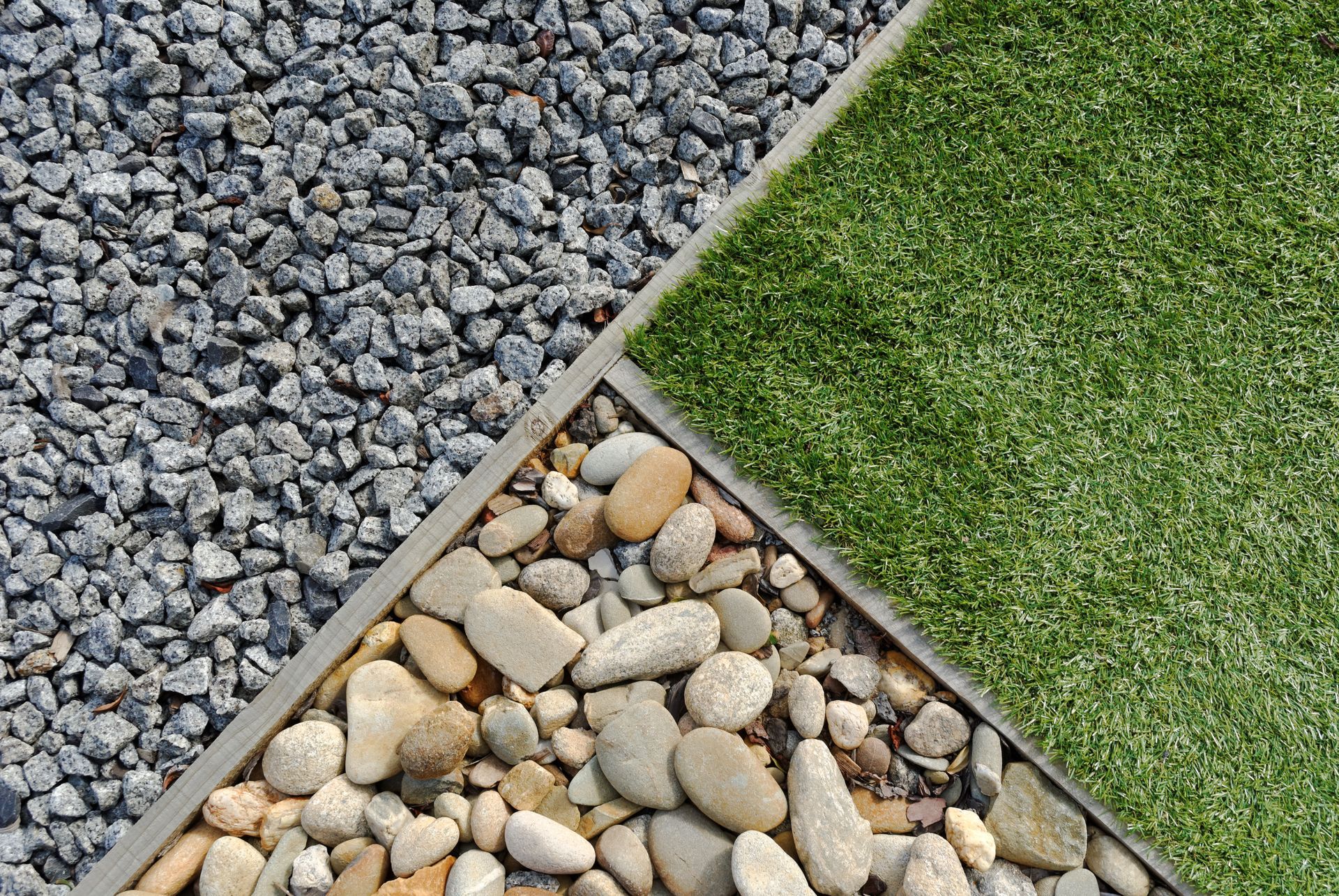
Crushed rock is a versatile and essential material for many landscaping projects. Understanding the different types of crushed rock and their unique benefits can help you choose the best material for your needs. In this article, we'll explore several popular types of crushed rock, including granite, limestone, and basalt, and discuss their applications and advantages in landscaping. Granite Granite is a dense, hard, and durable igneous rock composed mainly of quartz, feldspar, and mica. It is available in various colors, from light gray to deep red. Applications: Pathways and Walkways: Granite's durability makes it an excellent choice for high-traffic areas like garden paths and walkways. Driveways: Its strength and resistance to weathering make granite ideal for driveways, providing a long-lasting surface that can withstand heavy use. Decorative Landscaping: Granite's varied colors and textures add visual interest to garden beds, rock gardens, and water features. Benefits: Durability: Granite is one of the hardest natural stones, making it highly resistant to wear and tear. Aesthetic Appeal: Granite's range of colors and textures can enhance the visual appeal of any landscape. Low Maintenance: Granite requires minimal maintenance, retaining its appearance and functionality over time. Limestone Limestone is a sedimentary rock composed primarily of calcium carbonate. It is typically white, gray, or tan and can have a smooth or rough texture. Applications: Garden Borders: Limestone's neutral colors and smooth texture make it perfect for creating clean, defined garden borders. Patios and Walkways: Crushed limestone is often used for patio and walkway bases due to its ability to compact well and provide a stable foundation. Soil Amendment: Limestone can be crushed into a fine powder and used to amend acidic soils, raising the pH and improving plant growth. Benefits: Versatility: Limestone can be used in various landscaping applications, from structural bases to decorative accents. Natural pH Balancer: Limestone is a soil amendment that helps to neutralize acidic soils, promoting healthier plant growth. Cost-Effective: Limestone is generally more affordable than other types of crushed rock, making it a budget-friendly option for many projects. Basalt Basalt is a dark-colored, fine-grained igneous rock rich in iron and magnesium. It is often crushed for various landscaping purposes. Applications: Driveways and Walkways: Basalt's hardness and density suit high-traffic areas, providing a stable and durable surface. Water Features: Basalt's dark color and natural look make it an attractive choice for water features like ponds and fountains. Erosion Control: Crushed basalt, due to its weight and stability, is effective for controlling soil erosion on slopes and embankments. Benefits: Strength: Basalt is one of the strongest natural stones, making it highly resistant to crushing and wear. Aesthetic Appeal: Its dark color and fine texture can add a sleek, modern look to any landscape. Environmental Benefits: Basalt can help reduce soil erosion, preserving the integrity of your landscape over time. Conclusion Choosing the correct type of crushed rock for your landscaping project can enhance your outdoor space's beauty, functionality, and durability. Granite, limestone, and basalt offer unique benefits and applications, making them suitable for various uses. By understanding the characteristics and advantages of these materials, you can make informed decisions that will improve the overall quality and longevity of your landscaping projects. Whether you're building a pathway, creating a garden border, or installing a water feature, a type of crushed rock can meet your needs and elevate your landscape design.
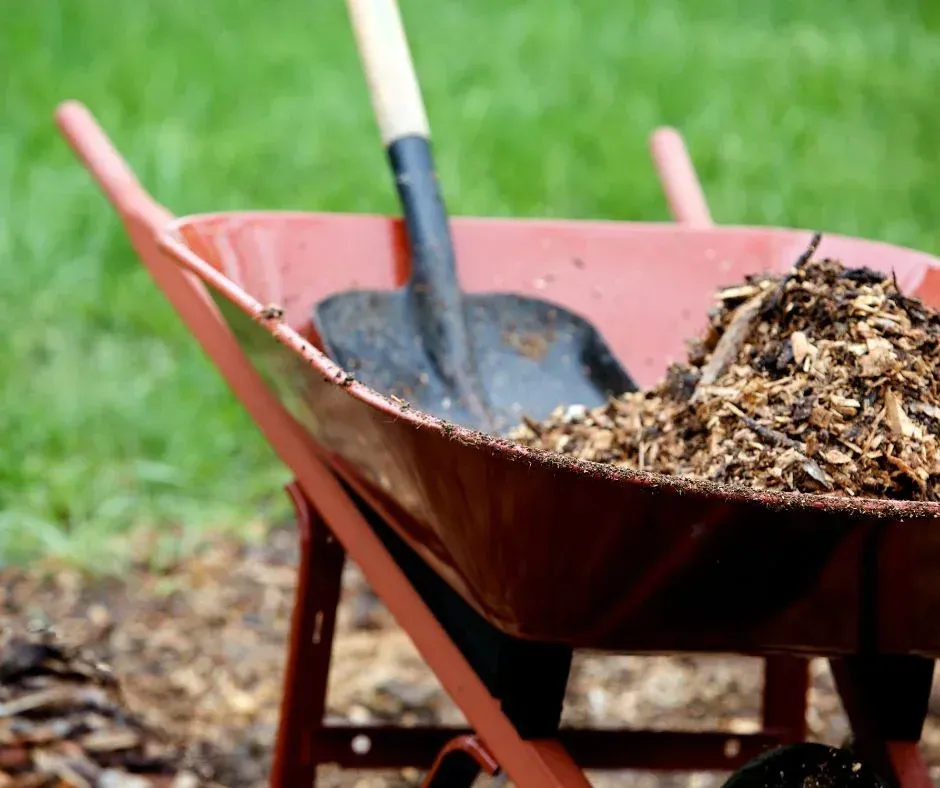
Mulch is an essential component in any garden enthusiast's toolkit, often underestimated for the multitude of benefits it brings to your plants and soil. Whether you're a seasoned gardener or just starting out, understanding how mulch can boost your garden's growth is key to achieving a thriving and vibrant outdoor space. In this article, we'll explore the many advantages of using mulch and provide tips on how to make the most of this invaluable gardening resource. Mulch: Moisture Retention: One of the primary benefits of mulch is its ability to retain moisture in the soil. By covering the soil's surface with a layer of mulch, you create a barrier that reduces evaporation, keeping the soil consistently moist. This is especially advantageous during hot and dry periods, as it helps your plants stay hydrated and reduces the need for frequent watering. Temperature Regulation: Mulch acts as a natural insulator for your garden soil, helping to regulate temperature fluctuations. It keeps the soil cooler in the scorching summer months and warmer during the chilly winters, providing a more stable environment for your plants' roots. This stability encourages healthier root growth and overall plant development. Weed Suppression: Mulch serves as a barrier against weed growth by blocking sunlight from reaching weed seeds beneath the surface. This not only minimizes the competition for nutrients and water but also reduces the need for time-consuming weeding. As a result, your garden can flourish without the interference of unwanted plants. Nutrient Enrichment: Over time, organic mulches break down and decompose, adding valuable nutrients to the soil. This natural process enhances soil fertility, creating an environment where your plants can thrive. Additionally, some mulches, such as compost or leaf mulch, directly contribute nutrients, further enriching the soil. Erosion Control: Mulch prevents soil erosion by reducing the impact of heavy rainfall and wind. It acts as a protective layer, keeping the soil in place and safeguarding against erosion, which can be particularly beneficial on slopes or in areas prone to runoff. Improved Aesthetics: In addition to its functional benefits, mulch also enhances the visual appeal of your garden. It provides a uniform and tidy appearance, making your garden beds look well-maintained and inviting. Mulch comes in various colors and textures, allowing you to customize the aesthetic to your liking. Mulch is a versatile and indispensable tool for gardeners, offering numerous advantages that significantly contribute to your garden's growth and vitality. From moisture retention and temperature regulation to weed suppression and nutrient enrichment, mulch plays a pivotal role in creating a flourishing garden. So, don't overlook this gardening secret; incorporate mulch into your garden strategy and watch your plants thrive like never before.
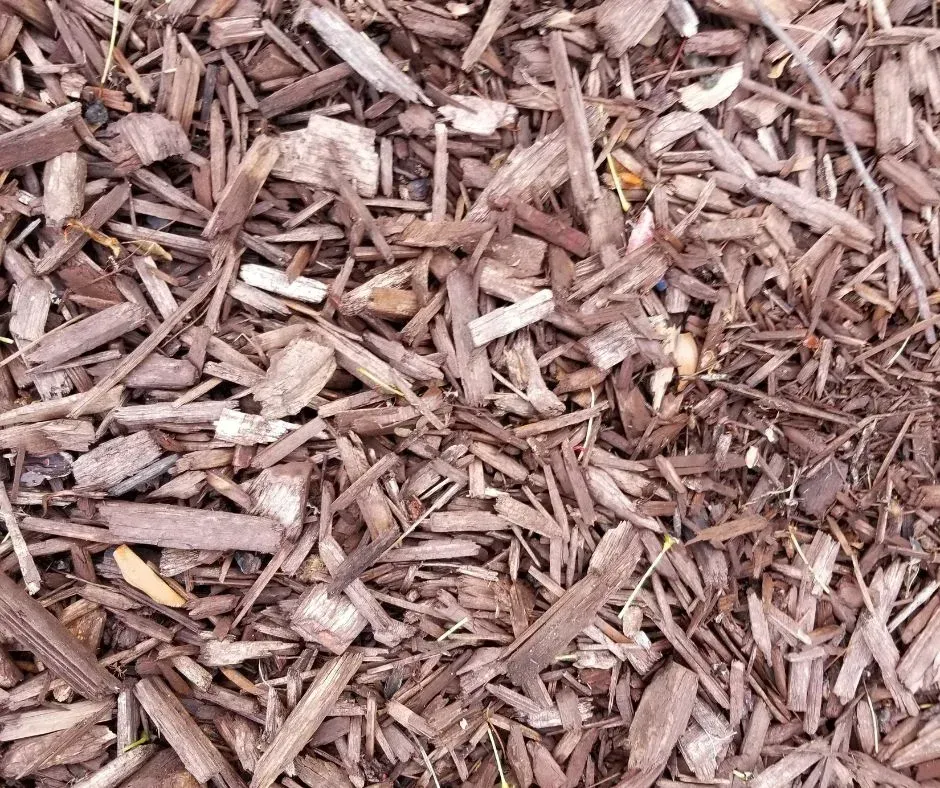
Mulch is a versatile and often underestimated landscaping material that can work wonders in enhancing the beauty and health of your outdoor space. Whether you have a sprawling garden or a small backyard, mulch can transform your landscape in numerous ways. In this article, we will explore the various benefits of using mulch and how it can help you create a more appealing and sustainable outdoor environment. Enhancing Curb Appeal: Mulch comes in various colors and textures, allowing you to choose the one that complements your home's exterior and garden aesthetics. By adding a layer of mulch to your flower beds, walkways, or around trees and shrubs, you instantly boost your property's curb appeal. The clean, polished look that mulch provides can make your landscape appear well-maintained and inviting. Weed Suppression: One of the most significant advantages of mulch is its ability to suppress weeds. When applied properly, mulch creates a barrier that prevents weed seeds from germinating and taking root in your garden beds. This means less time spent on back-breaking weeding and more time enjoying your beautiful landscape. Moisture Retention: Mulch acts as a natural insulator, helping to retain moisture in the soil. By reducing evaporation, it ensures that your plants receive a consistent supply of water, even during hot and dry periods. This not only saves you money on water bills but also promotes healthy plant growth. Temperature Regulation: Mulch acts as a temperature buffer, keeping the soil cooler in the summer and warmer in the winter. This helps protect the roots of your plants from extreme temperature fluctuations and can extend the growing season for certain plants. Soil Improvement: Over time, as mulch breaks down, it enriches the soil with organic matter. This improves soil structure, fertility, and nutrient content, creating an ideal environment for plants to thrive. As a result, you'll notice healthier and more vigorous growth in your garden. Erosion Control: Mulch helps prevent soil erosion by reducing the impact of rainwater and wind on the soil surface. It anchors the soil in place and reduces runoff, making it an excellent choice for sloped areas and gardens prone to erosion. Pest and Disease Management: Certain types of mulch, such as cedar or cypress, have natural properties that can deter insects and fungi. Using these mulches strategically can help protect your plants from common garden pests and diseases. Mulch is a cost-effective and environmentally friendly landscaping tool that can drastically transform your outdoor space. Whether you're looking to improve the aesthetics of your garden, reduce maintenance, or promote plant health, mulch is a versatile solution. So, why wait? Transform your landscape with mulch and enjoy the benefits it brings to your garden and overall outdoor experience.
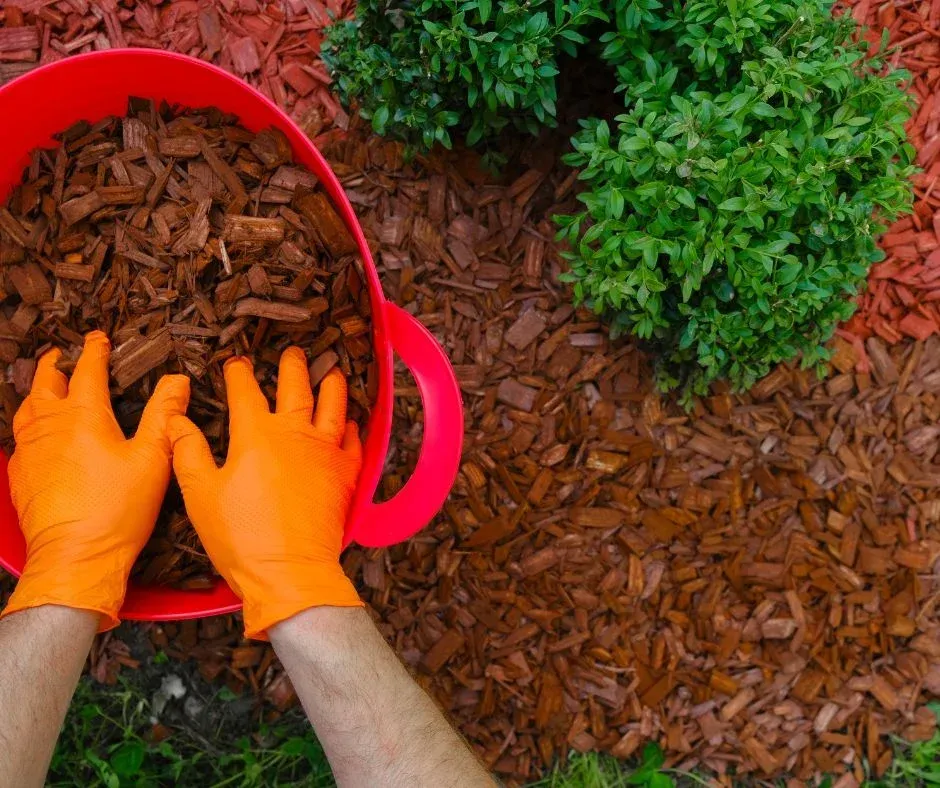
As February rolls in, it's time to start thinking about your garden and landscaping plans for the upcoming spring season. One essential task to consider this month is mulching. Mulch serves as a protective barrier for your plants and soil, helping them thrive as the weather warms up. Here are some valuable mulching tips for February to ensure your garden's success: Choose the Right Mulch: Select a mulch type that suits your specific needs. Organic mulches like wood chips, straw, or compost are excellent for improving soil fertility, while inorganic mulches such as gravel or rubber mulch provide long-lasting weed control. Prepare the Area: Before applying mulch, clear the area of any debris, weeds, and dead plants. This will ensure that your mulch can do its job effectively and that unwanted pests or diseases don't linger. Adjust Mulch Depth: Mulch should be applied to a depth of 2-4 inches, but be cautious not to over-mulch, as this can suffocate plant roots and prevent water from reaching the soil. Avoid Piling Mulch Against Plant Stems: Create a mulch-free zone around the base of trees, shrubs, and flowers. Piling mulch against plant stems can lead to rot and disease. Mulch Around Perennials and Bulbs: Insulate perennial plants and spring-blooming bulbs with mulch. This protects them from temperature fluctuations and frost heaving during late winter and early spring. Mulch for Weed Suppression: Mulch acts as a natural weed barrier. By applying it early in the season, you can reduce the number of weeds that emerge later on. Consider Mulch Color: Dark-colored mulches, like black or brown, can absorb heat and help warm the soil faster in late winter. This can be beneficial for certain plants and vegetables. Maintain Mulch Thickness: Over time, mulch can break down and decompose. Keep an eye on the mulch layer and replenish it as needed to maintain the desired depth. Watch for Mold or Fungus: In wet climates, be on the lookout for mold or fungus growth on the mulch surface. To prevent this, fluff the mulch regularly to promote air circulation. Water and Inspect: Ensure that your plants receive sufficient moisture during dry spells. Mulch helps retain moisture, but it's essential to monitor soil moisture levels and water as needed. By following these mulching tips for February, you'll give your garden a head start on a successful growing season. Mulch not only enhances the aesthetics of your landscape but also provides crucial protection and nourishment for your plants, setting the stage for a vibrant and healthy garden in the months to come.
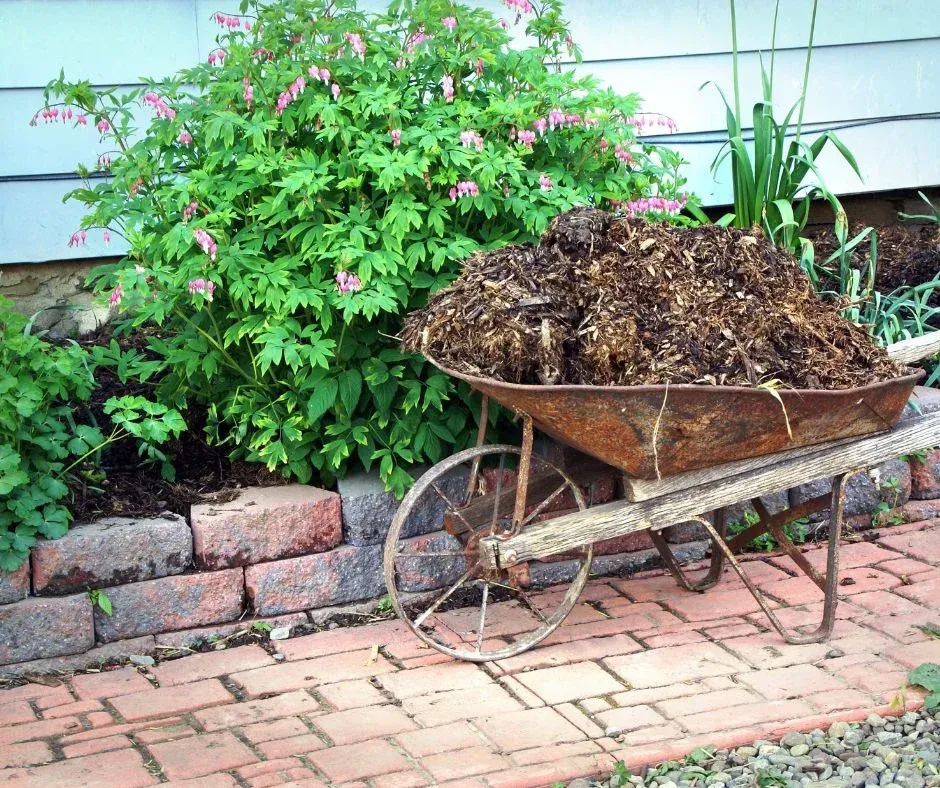
Mulch is a simple yet highly effective tool that can work wonders in transforming your garden. It's not just about adding an aesthetic layer to your outdoor space; mulch offers numerous benefits that can improve the health and appearance of your garden. In this article, we will explore how mulch can be a game-changer for your garden and why it should be an essential part of your landscaping efforts. Mulch: Improved Soil Health One of the primary ways mulch can transform your garden is by enhancing the health of your soil. When mulch is spread over the soil surface, it acts as a protective barrier, preventing the evaporation of moisture and reducing weed growth. This helps to maintain a consistent level of moisture in the soil and reduces the need for constant watering. Additionally, as mulch breaks down over time, it enriches the soil with essential nutrients, promoting healthier plant growth. Weed Suppression: Weeds can be a constant nuisance in any garden, stealing nutrients and water from your desirable plants. Mulch serves as a natural weed suppressor by blocking sunlight from reaching weed seeds, preventing them from germinating and thriving. This reduces the need for chemical herbicides and manual weeding, making garden maintenance much more manageable. Temperature Regulation: Mulch also plays a crucial role in regulating soil temperature. In the scorching heat of summer, mulch helps keep the soil cooler by providing shade and insulation. Conversely, during the colder months, it acts as an insulating layer, protecting the roots of your plants from freezing temperatures. This temperature regulation promotes optimal conditions for plant growth year-round. Erosion Control: If you have sloped areas in your garden, erosion can be a significant concern. Mulch acts as a barrier that helps prevent soil erosion by absorbing the impact of heavy rain and reducing surface runoff. This not only protects your garden's soil but also maintains the integrity of your landscape design. Enhanced Aesthetics: Mulch comes in various colors and materials, allowing you to choose the perfect option to complement your garden's aesthetic. It provides a neat and tidy appearance that instantly enhances the overall visual appeal of your outdoor space. Whether you prefer organic mulch like wood chips or decorative mulch like gravel or colored bark, there are options to suit every style. Water Conservation: Water scarcity is a concern in many regions, making efficient water use a priority for gardeners. Mulch significantly reduces water evaporation from the soil, allowing you to water your plants less frequently while still keeping them adequately hydrated. This not only conserves water but also saves you time and money in the long run. Incorporating mulch into your garden can have a transformative effect on its health and appearance. From improving soil quality to controlling weeds, regulating temperature, and enhancing aesthetics, mulch offers a multitude of benefits that every gardener can appreciate. So, if you haven't already, consider adding mulch to your gardening toolkit and watch as it transforms your outdoor oasis into a thriving and beautiful landscape.
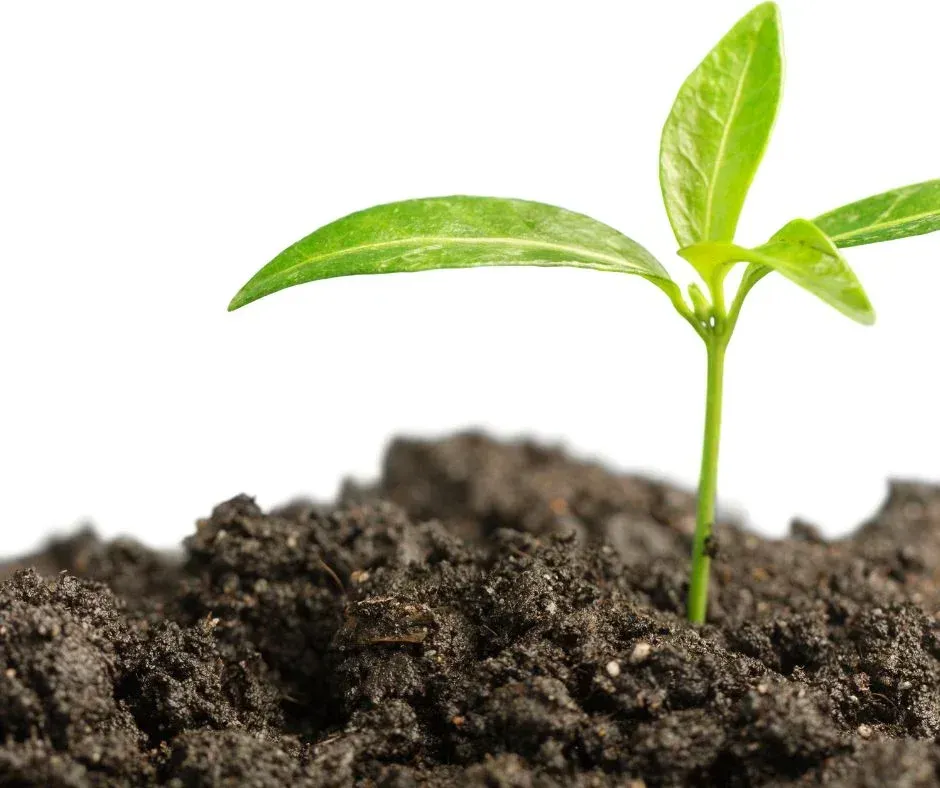
Healthy soil is the foundation of a thriving garden. As gardeners, understanding the secrets of healthy soil is crucial for growing vibrant and productive plants. Whether you're a novice or an experienced gardener, this guide will delve into the essential elements that make up healthy soil and how to achieve it in your garden. Let's uncover the secrets that will transform your soil into a fertile haven for your plants. Know Your Soil: Before you can improve your soil, you need to understand its composition. Soil can be classified into three main types: sand, silt, and clay. Each type has its unique characteristics, and knowing your soil type will help you make informed decisions about how to improve it. The Importance of Organic Matter: One of the most critical secrets to healthy soil is the presence of organic matter. Organic matter, such as compost, decomposed leaves, and manure, enriches the soil with essential nutrients and improves its structure. Regularly adding organic matter will enhance soil fertility and water retention. pH Balance: The pH level of your soil plays a significant role in plant growth. Different plants thrive in different pH ranges, so it's essential to test your soil and adjust it as needed. Lime can be added to raise pH, while sulfur can lower it. Maintaining the right pH balance ensures that your plants can access the nutrients they need. Proper Drainage: Healthy soil should have good drainage to prevent waterlogging. To improve drainage, consider incorporating organic matter and coarse materials like sand or perlite into your soil. Adequate drainage helps prevent root rot and other moisture-related issues. Avoid Over-tilling: While it's essential to loosen the soil for root growth, over-tilling can disrupt the natural structure and beneficial microorganisms in your soil. Minimize excessive tilling and use no-till or low-till methods to protect the soil ecosystem. Crop Rotation: Crop rotation is a secret used by experienced gardeners to maintain soil health. By rotating crops each season, you reduce the risk of soil-borne diseases and nutrient depletion. This practice helps keep your soil fertile and your plants healthy. Beneficial Microorganisms: Healthy soil is teeming with beneficial microorganisms, such as bacteria and fungi, that break down organic matter and release nutrients for plants. Avoid using chemical pesticides and fertilizers that harm these essential soil organisms. Mulching: Mulching not only helps retain moisture but also adds a protective layer to your soil, preventing erosion and weed growth. Organic mulches, like straw or wood chips, break down over time, further enriching your soil. Regular Soil Testing: Regularly testing your soil for nutrient levels and pH is a key secret to maintaining soil health. Test results can guide you in making necessary amendments and adjustments to optimize soil conditions for your specific plants. Healthy soil is the secret weapon of successful gardeners. By understanding and implementing these secrets of healthy soil, you can create a garden that thrives with vibrant, robust plants and bountiful harvests. Take the time to nurture your soil, and it will reward you with a beautiful and productive garden year after year.
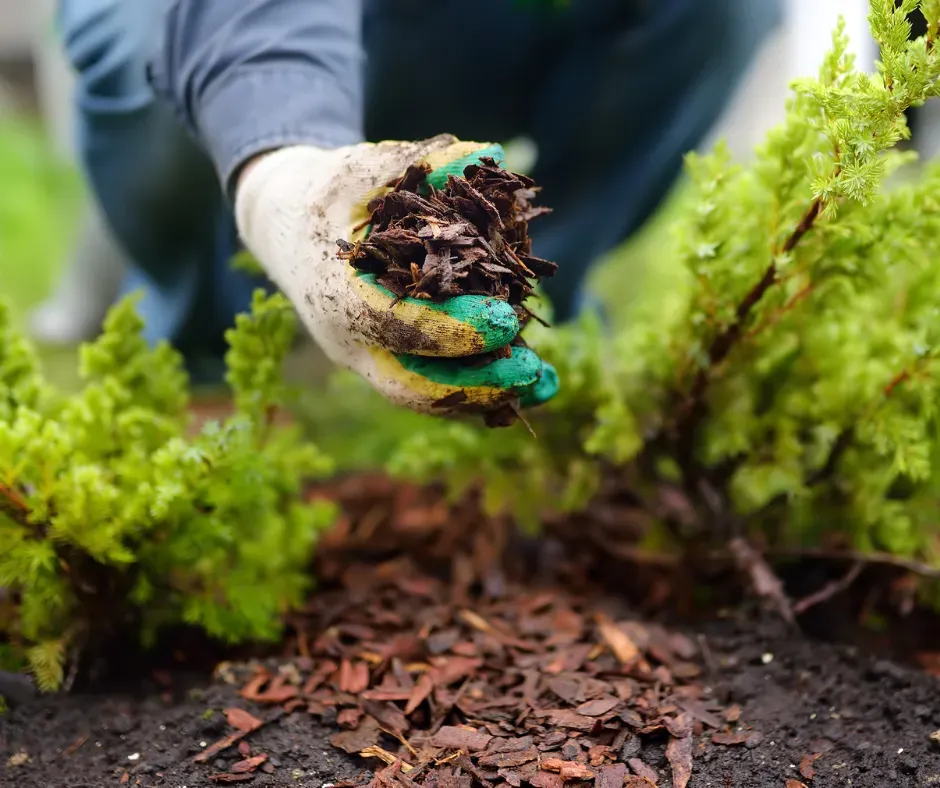
Gardening enthusiasts often dream of lush, thriving gardens filled with vibrant plants and beautiful blooms. While achieving this dream may seem like a daunting task, there's a simple secret that can make a world of difference: mulch. Mulch is a gardener's best friend, offering numerous benefits that can transform your garden dreams into a stunning reality. In this article, we'll explore how mulch can play a pivotal role in enhancing the health and beauty of your garden. Weed Control: One of the primary challenges gardeners face is battling persistent weeds that compete with your beloved plants for nutrients and space. Mulch acts as a natural weed suppressor by blocking sunlight from reaching weed seeds, preventing them from germinating. This means less time spent weeding and more time enjoying your garden. Moisture Retention: Maintaining consistent soil moisture levels is essential for healthy plant growth. Mulch acts as a protective barrier, reducing evaporation and helping to retain moisture in the soil. This not only saves you time and effort on constant watering but also ensures your plants receive the hydration they need, even during dry spells. Temperature Regulation: Mulch provides insulation for your garden, helping to moderate soil temperatures. In the scorching heat of summer, mulch keeps the soil cooler, while in colder months, it acts as a buffer, preventing rapid temperature fluctuations that can harm plant roots. This temperature regulation creates a more stable and nurturing environment for your plants. Soil Enrichment: As mulch breaks down over time, it adds valuable organic matter to the soil. This natural decomposition process enriches the soil with essential nutrients, enhancing its fertility and promoting healthier plant growth. Mulch also encourages beneficial microorganisms in the soil, further improving its overall quality. Erosion Control: Heavy rain and strong winds can erode the topsoil of your garden, leading to soil loss and nutrient depletion. Mulch acts as a protective shield, reducing the impact of these elements and preventing erosion. This helps to maintain the integrity of your garden's soil structure. Aesthetic Appeal: Mulch comes in various colors and textures, allowing you to customize your garden's appearance. Whether you prefer the natural look of wood chips, the elegance of gravel, or the richness of organic mulch, you can choose the type that complements your garden's design and enhances its visual appeal. Reduced Maintenance: With mulch taking care of weed control, moisture retention, and soil enrichment, your gardening workload will be significantly reduced. You'll spend less time on labor-intensive tasks and more time enjoying the beauty and serenity of your garden. If you've been yearning to transform your garden dreams into reality, look no further than mulch. This humble gardening tool offers a multitude of benefits that improve the health, appearance, and overall success of your garden. From weed control and moisture retention to temperature regulation and soil enrichment, mulch is the key to creating the garden you've always envisioned. So, get ready to watch your garden flourish and thrive with the help of this simple yet powerful ally – mulch. Your dream garden is just a layer of mulch away from becoming a reality.
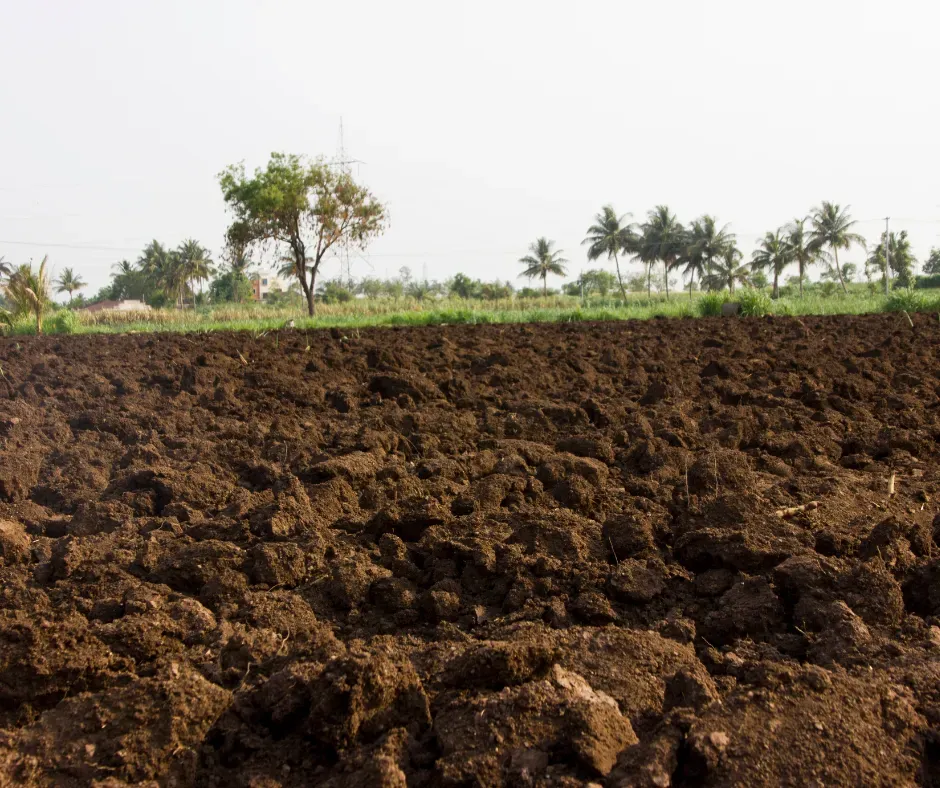
Soil, often overlooked and underestimated, plays a crucial role in sustaining life on Earth. As we enter the year 2024, it's essential to understand the significance of this hidden treasure beneath our feet and how it continues to impact our planet and its inhabitants. In this blog, we will explore the vital role soil plays in our ecosystem, the current challenges it faces, and the innovative solutions being developed to safeguard this precious resource. The Soil Ecosystem: A Living Universe Soil is far more than just dirt; it is a complex and dynamic ecosystem teeming with life. Beneath the Earth's surface, billions of microorganisms, insects, fungi, and plant roots interact in a delicate balance. These tiny organisms perform essential functions like decomposing organic matter, cycling nutrients, and improving soil structure. They create a fertile environment for plants to grow, which, in turn, sustains both terrestrial and aquatic ecosystems. Challenges Facing Our Soil Despite its importance, the soil is facing numerous challenges in 2024. One of the most pressing issues is soil degradation. Factors such as deforestation, overgrazing, urbanization, and improper agricultural practices have led to soil erosion, nutrient depletion, and loss of biodiversity. Climate change exacerbates these problems, causing extreme weather events that further degrade soil quality. Soil's Impact on Food Security One of the most critical aspects of soil is its role in food production. Healthy soil is essential for growing crops, and it directly impacts food security. In 2024, the global population continues to grow, placing increasing pressure on agriculture. To meet the demands of a growing population, we must prioritize soil conservation and sustainable farming practices. Innovations in Soil Management Thankfully, scientists and farmers are not standing idly by. In 2024, innovative solutions are emerging to address soil-related challenges. Precision agriculture, for example, utilizes technology such as drones and sensors to optimize farming practices, minimizing soil disturbance and reducing the use of chemical inputs. Cover cropping, crop rotation, and organic farming techniques help restore soil health and fertility. Moreover, advancements in soil science are shedding light on the intricate relationships within the soil microbiome, opening up new possibilities for sustainable agriculture. The Role of Policy and Education Policy-makers play a crucial role in ensuring the conservation and sustainable management of our soil resources. In 2024, governments around the world are recognizing the importance of soil conservation and are implementing regulations to promote responsible land use and soil protection. Additionally, educational initiatives are raising awareness among the public, encouraging individuals to take part in preserving this hidden treasure. The Future of Soil in 2024 and Beyond As we move forward into 2024 and beyond, it is clear that the health of our soil is intrinsically linked to the health of our planet. Soil sustains life, mitigates climate change, and provides the foundation for agriculture. It is a hidden treasure that demands our attention and protection. By adopting sustainable farming practices, supporting research and innovation, and advocating for responsible land use policies, we can ensure that soil continues to play a vital role in our ecosystem. Let us recognize the Earth's hidden treasure and work together to preserve and protect this invaluable resource for generations to come.
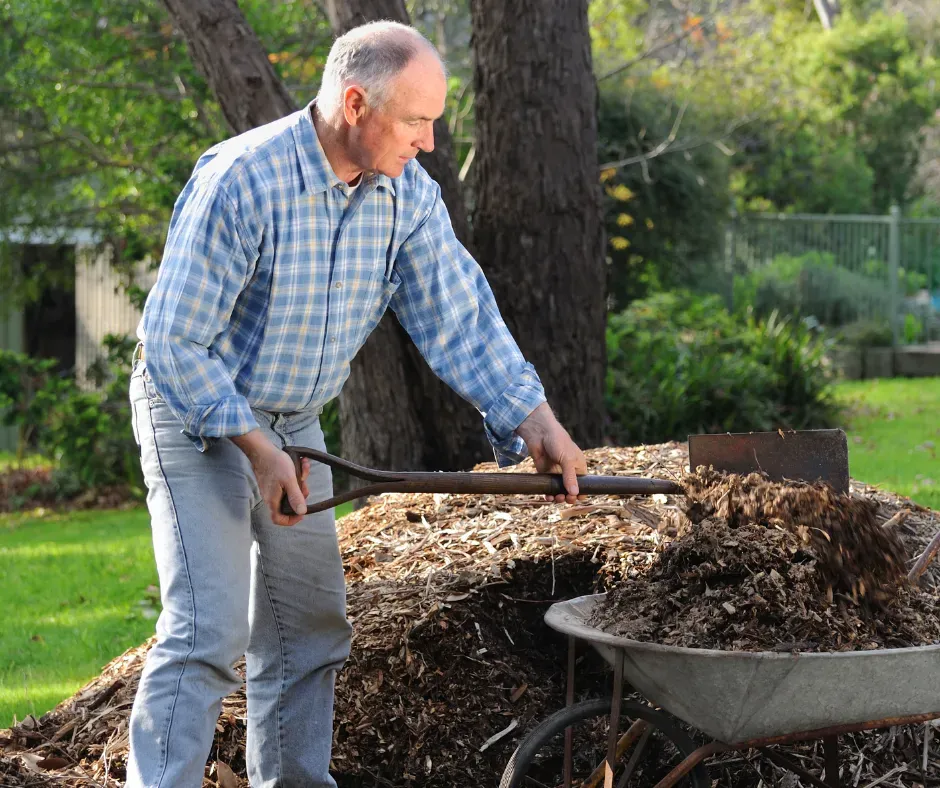
As we step into the year 2024, gardening enthusiasts and experts alike are excited to explore the latest trends that will shape the world of gardening. One trend that has gained significant attention and is set to make a lasting impact is the practice of mulching. In this article, we'll delve into the fascinating world of mulching and why it has become an essential element of modern gardening. The Importance of Mulching: Mulching is not a new concept in gardening, but it has gained renewed popularity for several compelling reasons. This eco-friendly technique involves covering the soil with a layer of organic or inorganic material, providing a range of benefits to both plants and gardeners. Moisture Conservation: In an era where water conservation is paramount, mulching plays a vital role in retaining soil moisture. A thick layer of mulch acts as a barrier, reducing water evaporation and helping your plants thrive even in dry conditions. This trend aligns perfectly with the increasing awareness of sustainable gardening practices. Weed Suppression: Gardeners have long battled with weeds, but mulching can significantly reduce this ongoing struggle. Mulch acts as a natural weed barrier, preventing weed seeds from germinating and reducing the need for chemical herbicides. As people embrace more organic and chemical-free gardening, mulching is an ideal solution. Soil Health: Healthy soil is the foundation of a successful garden, and mulching contributes to soil improvement. As mulch breaks down over time, it enriches the soil with organic matter, improving its structure, fertility, and overall health. This creates an environment where plants can thrive and grow vigorously. Temperature Regulation: Extreme temperature fluctuations can stress plants. Mulch acts as a natural insulator, protecting plant roots from the harsh elements. In colder climates, it provides a buffer against frost, while in hot climates, it helps to keep the soil cool, reducing heat stress. Aesthetic Appeal: Beyond its practical benefits, mulching adds an attractive finishing touch to your garden beds. With various types of mulch available in different colors and textures, you can enhance the visual appeal of your garden, making it an inviting and beautiful space. Types of Mulch: To embrace the power of mulching, gardeners can choose from various types of mulch, including organic options like wood chips, straw, leaves, and compost, as well as inorganic options like gravel and landscape fabric. Each type of mulch offers its unique advantages, allowing gardeners to select the one that best suits their needs and preferences. As we embark on a new gardening season in 2024, it's clear that mulching is not just a passing trend but an essential practice for modern gardeners. Embracing the power of mulch not only promotes sustainability and water conservation but also contributes to healthier, more vibrant gardens. So, whether you're an experienced gardener or just starting your green journey, make mulching a part of your gardening routine and reap the rewards of a beautiful and thriving garden.

Playgrounds have always been synonymous with childhood fun and laughter. They provide children with a space to run, climb, swing, and explore, fostering physical activity and social interaction. However, in recent years, there has been a growing trend to make playgrounds even more beneficial for children's health by incorporating innovative features like "playground chips." In this blog, we will delve into what playground chips are and how they are boosting kids' health in various ways. What Are Playground Chips? Playground chips, also known as safety surface materials or mulch, are specially designed ground coverings used in play areas to minimize the impact of falls and provide a safer environment for children. These chips are typically made from natural materials like wood, rubber, or foam, and they are spread evenly across the play area to create a soft landing surface. Now, you might be wondering how these playground chips are helping to boost kids' health. Let's explore some of the ways they are making a positive impact: Preventing Injuries Safety should always be a top priority in any playground. Playground chips act as a cushioning layer that helps reduce the risk of injuries from falls. When children run, jump, or climb on play equipment, there's always a chance of accidents. Playground chips create a softer surface that absorbs the shock of falls, minimizing the severity of injuries like scrapes, bruises, and sprains. One of the key benefits of playground chips is that they encourage physical activity. Children are more likely to engage in active play when they feel safe and comfortable. Knowing that they won't get hurt as easily on a cushioned surface, kids are more willing to run, jump, and explore, helping them stay active and healthy. Enhancing Accessibility Playground chips also play a crucial role in making play areas accessible to children of all abilities. For children with disabilities, a soft and even surface can make it easier to move around and participate in play activities. This inclusivity ensures that all kids can enjoy the benefits of outdoor play. Fostering Social Interaction Playground chips offer a comfortable gathering space for children to socialize and collaborate in play. Whether it's playing tag, building sandcastles, or simply sitting together to chat, these soft surfaces provide a welcoming environment for social interaction, helping kids develop essential social skills. Supporting Cognitive Development Outdoor play is not just about physical health; it also contributes to cognitive development. Playground chips provide a tactile experience, allowing kids to explore textures and use their imagination. From building imaginary landscapes to digging for "treasures," these soft surfaces can stimulate creativity and problem-solving skills. Playground chips are more than just a safety measure; they are a valuable tool for promoting children's health and well-being. By providing a safer play environment, encouraging physical activity, fostering inclusivity, enhancing social interactions, and supporting cognitive development, these innovative surfaces contribute to the holistic development of children. So, the next time you visit a playground with your child, take a moment to appreciate the impact of those soft, cushiony chips beneath their feet, boosting their health in more ways than one.

When we think of playgrounds, we often conjure up images of swings, slides, and climbing structures. These timeless features have been the staples of childhood fun for generations. However, in recent years, there has been a new addition to the playground scene that is changing the game for kids – playground chips. Playground chips, also known as playground mulch or wood chips, have become increasingly popular as a safer and more practical alternative to traditional playground surfaces like sand or gravel. In this blog, we'll explore why playground chips are making waves in the world of play and how they benefit children in numerous ways. Safety First One of the primary reasons playground chips have gained favor is their safety features. Unlike sand or gravel, which can be abrasive and hard on young knees and hands, playground chips provide a soft and cushioned surface. This cushioning effect helps absorb the impact when children fall, reducing the risk of injury. Parents and caregivers can rest easy knowing that their children are playing on a surface designed to minimize accidents. Furthermore, playground chips also help to prevent injuries related to slips and falls. They provide excellent traction, even in wet conditions, which can be a significant concern in traditional playgrounds with sand or mulch. Accessibility Playground chips also score high on accessibility. They are easy to navigate, making them suitable for children of all abilities. Wheelchair users, for instance, can move around the playground with greater ease on a smooth and even surface, fostering inclusivity and allowing every child to enjoy playtime to the fullest. Low Maintenance Maintenance is a crucial factor in the upkeep of any playground. Traditional surfaces like sand and gravel often require regular replenishment, leveling, and raking to maintain their safety and appearance. In contrast, playground chips are low-maintenance. Once properly installed, they require minimal upkeep, saving both time and money for schools, communities, and parents. Eco-Friendly Playground chips are typically made from recycled wood or other eco-friendly materials, making them an environmentally conscious choice. By using recycled materials, playgrounds can reduce their environmental footprint and contribute to sustainability efforts. Aesthetic Appeal Beyond safety and practicality, playground chips also offer aesthetic benefits. They provide a clean and neat appearance that enhances the overall look of the playground. With various color options available, playground chips can be customized to match the theme or design of the play area, adding a visually pleasing element to the space. Playground chips have undeniably transformed the way children play and experience the joy of the outdoors. Their safety features, accessibility, low maintenance requirements, and eco-friendliness make them a game-changer in the world of playgrounds. As parents, caregivers, and communities continue to prioritize the well-being and enjoyment of children, it's no wonder that playground chips are becoming the go-to choice for creating safer and more enjoyable play environments. So, the next time you visit a playground with your child, take a moment to appreciate the soft and inviting surface beneath their feet, and know that playground chips are making a significant difference in the world of play, one joyful leap at a time.
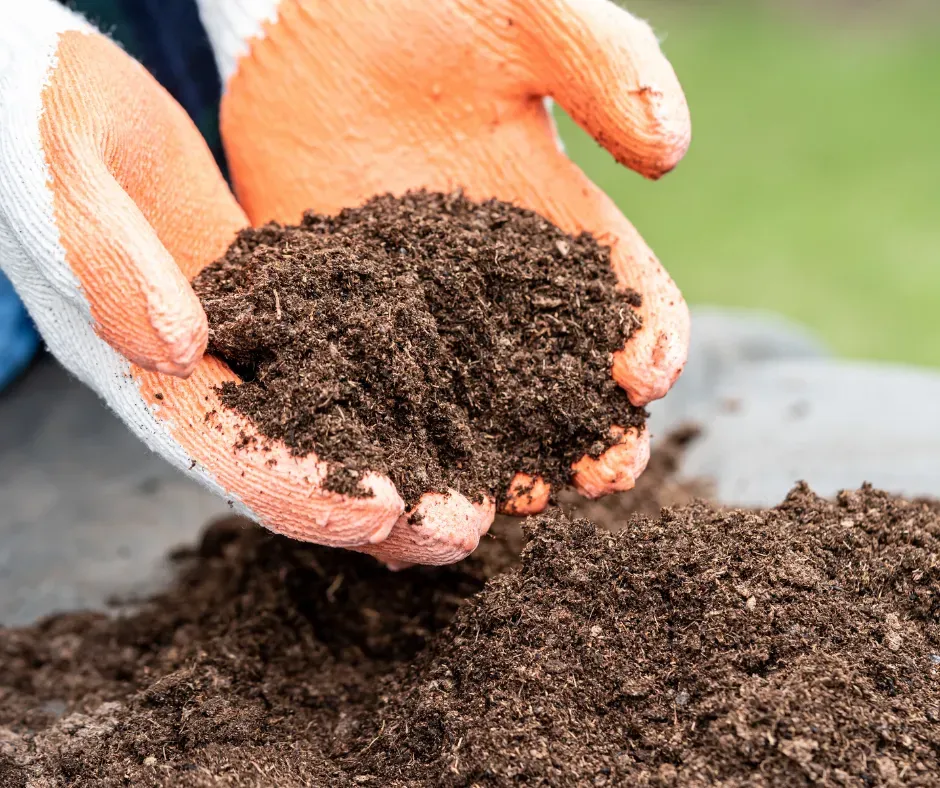
When we think about factors that influence our health and well-being, soil is probably not the first thing that comes to mind. However, the ground beneath our feet plays a significant role in our overall health. Soil is not just a medium for plants to grow; it has a profound impact on our lives in ways you might find surprising. In this blog post, we'll explore five unexpected ways soil affects your health and well-being. Soil Microbes and Gut Health Believe it or not, there's a connection between the soil beneath us and the microbes in our gut. Soil is teeming with microorganisms, many of which are beneficial to both plants and humans. When we come into contact with soil through activities like gardening or spending time outdoors, we introduce these microbes to our bodies. Research has shown that exposure to soil microbes can help improve our gut health and strengthen our immune system. These tiny organisms can stimulate the production of beneficial gut bacteria, which in turn can boost our overall well-being. Mood Enhancement Through "Earthing" Have you ever noticed how spending time walking barefoot on natural ground can make you feel more relaxed and grounded? This phenomenon is often referred to as "earthing." When we make direct skin contact with soil, we can absorb negative ions from the Earth's surface, which can help reduce stress and improve our mood. Studies have suggested that earthing may help reduce inflammation, improve sleep, and enhance overall emotional well-being. So, the next time you have the opportunity, take a walk in the grass or sand barefoot and reap the calming benefits of soil. Soil and Allergies Allergies can be a significant source of discomfort for many people. Surprisingly, the type of soil in your environment can have an impact on your susceptibility to allergies. Soil can contain allergenic particles like pollen and mold spores, which can become airborne and trigger allergic reactions. Understanding the soil composition in your area can help you manage your allergies more effectively. By being aware of the local flora and fauna and how they interact with the soil, you can take steps to minimize your exposure to allergens and reduce allergy symptoms. Soil as a Source of Essential Nutrients Healthy soil is the foundation of a nutritious food chain. When plants grow in nutrient-rich soil, they absorb essential minerals and vitamins that are then passed on to those who consume them. In contrast, poor soil quality can result in nutrient-deficient crops, which can have adverse effects on our health. By supporting sustainable farming practices and choosing foods grown in nutrient-rich soil, you can ensure that you are getting the essential nutrients your body needs for optimal health and well-being. Soil and Physical Activity Engaging in physical activities like gardening, farming, or outdoor sports not only gets you moving but also connects you with the soil. These activities provide an opportunity for exercise, relaxation, and stress reduction while allowing you to interact with the earth. Spending time outdoors and getting your hands dirty can promote a sense of well-being, reduce anxiety, and improve mental health. The physical benefits of such activities are well-documented, but the emotional and psychological advantages of connecting with the soil should not be underestimated. Soil is a vital yet often overlooked factor in our health and well-being. Its influence goes beyond providing a foundation for plants; it affects our gut health, mood, allergies, nutrition, and physical activity. Embracing the positive aspects of soil, such as gardening and spending time outdoors, can lead to a healthier and happier life. So, the next time you find yourself in contact with the earth, take a moment to appreciate the surprising ways soil is contributing to your overall well-being.
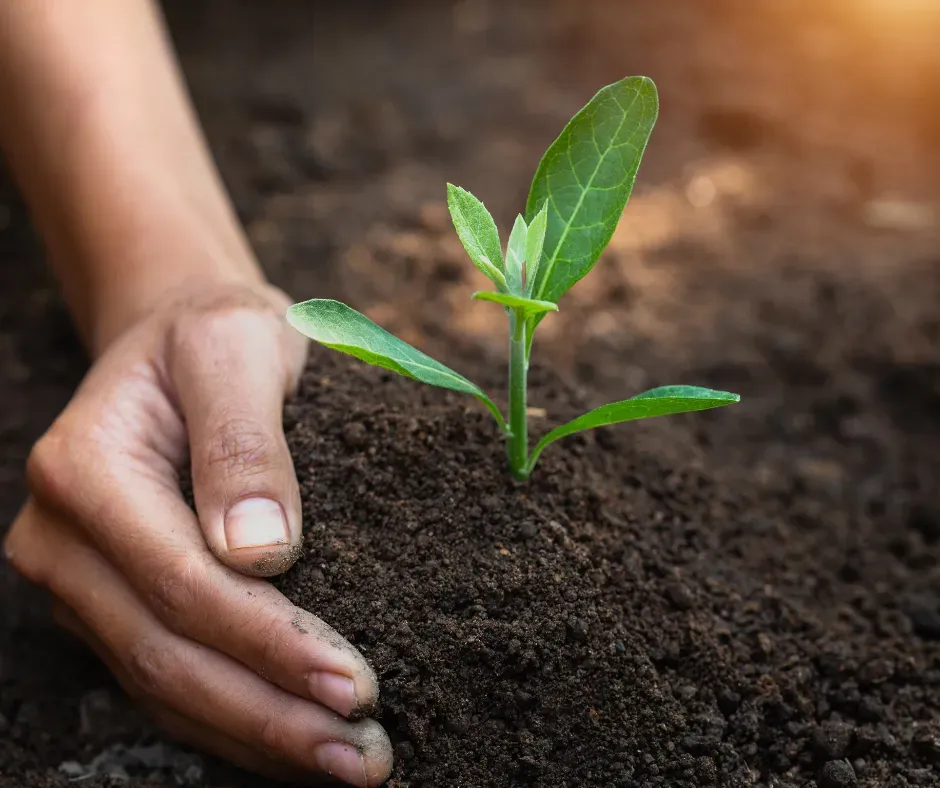
When it comes to successful gardening, whether you're growing flowers, vegetables, or herbs, one of the most critical factors is the quality of your soil. The science of soil is a fascinating and complex field, and understanding it can help you create the perfect growing environment for your plants. In this blog, we will delve into the world of soil science and explore how to optimize your soil for thriving plants. The Basics of Soil Science To begin our journey into the science of soil, let's start with the basics. Soil is not just dirt; it's a complex mixture of mineral particles, organic matter, water, air, and microorganisms. Each of these components plays a crucial role in plant growth and overall soil health. Soil Composition: Mineral Particles: Soil contains different-sized mineral particles, classified into three main categories: sand, silt, and clay. The ideal soil composition is often referred to as "loam," which is a balanced mixture of these three particle types. Organic Matter: Organic matter in the form of decomposed plant material (humus) enriches the soil, improves its structure, and provides essential nutrients to plants. Soil pH: The pH level of your soil is a measure of its acidity or alkalinity. Different plants have specific pH preferences. Testing your soil's pH can help you adjust it to meet the needs of the plants you want to grow. Soil Microorganisms : A thriving community of microorganisms, including bacteria, fungi, and earthworms, contribute to soil fertility. They break down organic matter, release nutrients, and improve soil structure. Steps to Create the Perfect Growing Environment Now that we've covered the basics of soil science, let's explore how to create the perfect growing environment for your plants: Soil Testing: Before you start any gardening project, it's essential to test your soil. You can purchase a soil testing kit or send a sample to a local agricultural extension service. The results will provide valuable information about your soil's pH and nutrient content. Soil Amendment: Based on your soil test results, you may need to amend your soil. You can adjust the pH using lime (to raise pH) or sulfur (to lower pH). Additionally, adding organic matter like compost or well-rotted manure can improve soil structure and nutrient content. Proper Watering: Overwatering or underwatering can harm your plants. Ensure your soil has adequate drainage to prevent waterlogging and water your plants based on their specific needs. Mulching: Mulch helps conserve moisture, regulate soil temperature, and suppress weeds. Organic mulches like straw, wood chips, or leaves also break down over time, adding nutrients to the soil. Crop Rotation: To prevent soil depletion and reduce the risk of pests and diseases, practice crop rotation in your garden. Avoid planting the same type of crop in the same spot year after year. Soil Care: Regularly monitor your soil's condition and adjust as needed. Consider using cover crops to improve soil health during the off-season. Creating the perfect growing environment for your plants involves understanding the science of soil and taking steps to optimize its composition and health. By testing, amending, and caring for your soil, you can provide your plants with the ideal conditions they need to thrive. Gardening is not just about planting seeds; it's about cultivating a vibrant soil ecosystem that supports the growth of beautiful and healthy plants. So, roll up your sleeves, get your hands dirty, and enjoy the rewards of a well-nurtured garden!
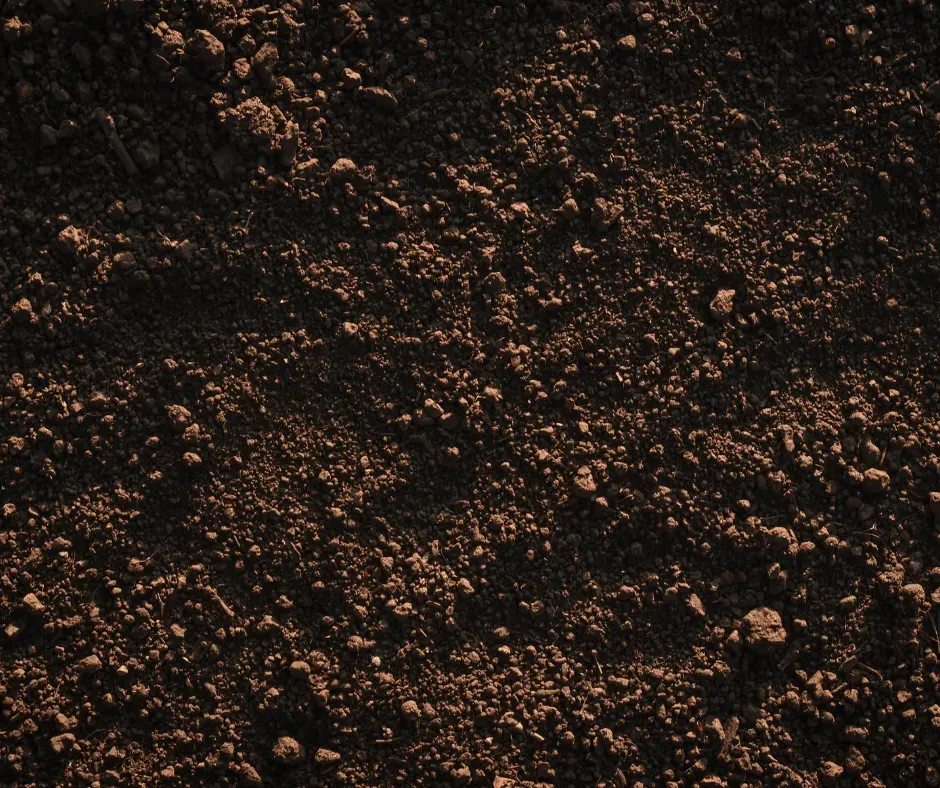
When you walk outside and feel the earth beneath your feet, have you ever stopped to think about what lies beneath the surface? Soil, the unassuming foundation of our planet's ecosystems, plays a vital role in supporting life as we know it. In this blog post, we will delve deep into the fascinating world of soil, uncovering its importance, composition, types, and its role in our environment. What Is Soil? Soil is the thin layer of material covering the Earth's surface that provides a habitat for plants and a medium for their growth. It is a complex mixture of mineral particles, organic matter, water, and air. Soil is not a static entity; instead, it is a dynamic system that is constantly changing due to various natural and human-induced factors. The Composition of Soil Soil is composed of several key components: Mineral Particles Mineral particles make up the inorganic portion of the soil. These particles come in different sizes, including sand, silt, and clay. The proportions of these particles in a soil's composition determine its texture. Sandy soils have larger particles, while clayey soils have smaller ones. Organic Matter Organic matter in soil consists of decomposed plant and animal materials. This component is rich in nutrients and plays a crucial role in soil fertility. Earthworms, microbes, and other soil organisms break down organic matter, enriching the soil with essential nutrients. Water Water is essential for all life forms, and soil serves as a reservoir for it. Soil's ability to retain and release water depends on its texture and structure. Adequate water in the soil is vital for plant growth and ecosystem stability. Air Soil contains pore spaces filled with air, which provides oxygen to plant roots and soil organisms. Proper aeration is necessary for the health of the soil and the organisms that inhabit it. Types of Soil There are various soil types, and they can be broadly categorized into three main classes: Sandy Soil Sandy soil has large mineral particles, which make it well-draining. However, it tends to dry out quickly and doesn't retain nutrients well. It is often found in arid regions. Silt Soil Silt soil has medium-sized particles and retains water better than sandy soil. It is fertile and found in many agricultural regions. Clay Soil Clay soil has the smallest particles, which makes it excellent at retaining water but also prone to waterlogging. It can be fertile when properly managed and is often found in regions with heavy rainfall. The Importance of Soil Soil is the foundation of agriculture, providing a medium for plant growth and a source of essential nutrients. It is also vital for carbon and nutrient cycling, helping to maintain ecosystem balance. Soil acts as a filter for water, removing contaminants and allowing clean water to recharge underground aquifers. Furthermore, soil supports biodiversity by providing a habitat for countless microorganisms, insects, and small animals. Healthy soil is essential for preserving our planet's ecosystems and ensuring food security for future generations. Soil Conservation Human activities, such as deforestation, urbanization, and improper agricultural practices, can lead to soil degradation. To ensure the longevity of this precious resource, it is crucial to practice sustainable land management and soil conservation techniques. The ground beneath your feet holds a world of wonder and complexity. Soil is a dynamic, living system that plays an integral role in our environment, agriculture, and the health of our planet. By understanding its composition, types, and importance, we can appreciate the significance of preserving and nurturing this invaluable resource. So, the next time you take a walk outside, remember that beneath your feet lies a world of life and potential, all thanks to the incredible world of soil.
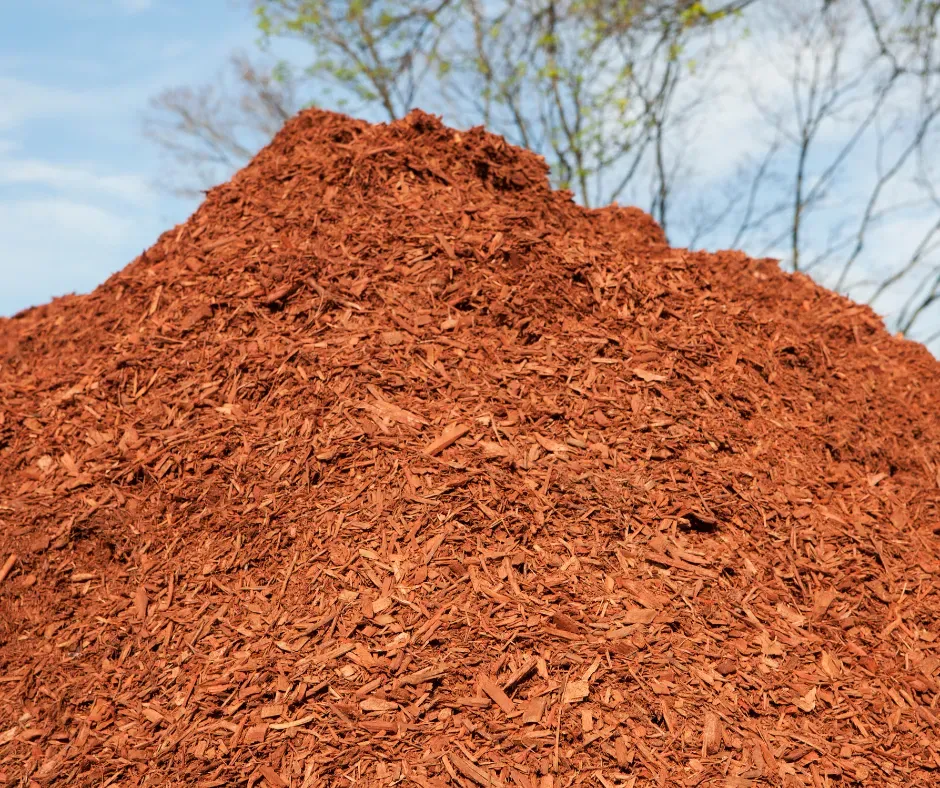
When it comes to enhancing the beauty and functionality of your outdoor space, you might be surprised to learn that one simple and often overlooked element can make a significant difference – mulch. Mulch is more than just a practical gardening tool; it can transform your outdoor area from drab to fab. In this blog, we'll explore the many ways mulch can elevate your outdoor space, turning it into a vibrant and inviting haven for you and your guests. Enhanced Aesthetics One of the most apparent benefits of using mulch in your outdoor space is its ability to enhance aesthetics. Mulch comes in various colors and textures, allowing you to choose the option that complements your landscaping and personal style. Whether you prefer the classic look of dark brown mulch or the rustic charm of cedar chips, mulch can instantly add visual appeal to your garden beds and pathways. Weed Control Tired of spending countless hours pulling weeds from your garden beds? Mulch can help alleviate this frustration. By creating a protective barrier over the soil, mulch prevents weed seeds from germinating and growing. This means less time spent weeding and more time enjoying your outdoor space. Moisture Retention Mulch acts as a natural moisture retainer, reducing the need for constant watering during hot summer months. It helps keep the soil cool and prevents moisture from evaporating too quickly. As a result, your plants will thrive and remain healthy, even in the most scorching weather conditions. Soil Health Over time, organic mulches break down and enrich the soil with essential nutrients. This improvement in soil health promotes better plant growth and overall garden vitality. As the mulch decomposes, it creates a fertile environment for beneficial microorganisms, ensuring your garden remains vibrant year after year. Temperature Regulation Mulch serves as a natural insulator, protecting plant roots from extreme temperature fluctuations. In the winter, it helps keep the soil warm, while in the summer, it provides a cooling effect. This temperature regulation is especially beneficial for sensitive plants and can extend the growing season in colder climates. Preventing Erosion If your outdoor space is on a slope or prone to erosion, mulch can be a lifesaver. It helps stabilize the soil and prevents it from washing away during heavy rains. This not only preserves the integrity of your landscaping but also protects nearby structures and minimizes soil loss. Safety and Comfort Mulch isn't just for garden beds; it's also an excellent choice for creating comfortable pathways and play areas. Its cushioning effect makes it an ideal surface for children's play areas, reducing the risk of injuries from falls. Additionally, it provides better traction and minimizes mud, making your outdoor space safer and more enjoyable. From enhancing aesthetics to promoting plant health and providing practical benefits like weed control and moisture retention, mulch is a versatile and invaluable addition to any outdoor space. Whether you have a sprawling garden or a small urban balcony, mulch can elevate your space from drab to fab. So, why wait? Consider incorporating mulch into your landscaping plans and unlock the full potential of your outdoor oasis. With its numerous advantages, you'll wonder how you ever managed without it.
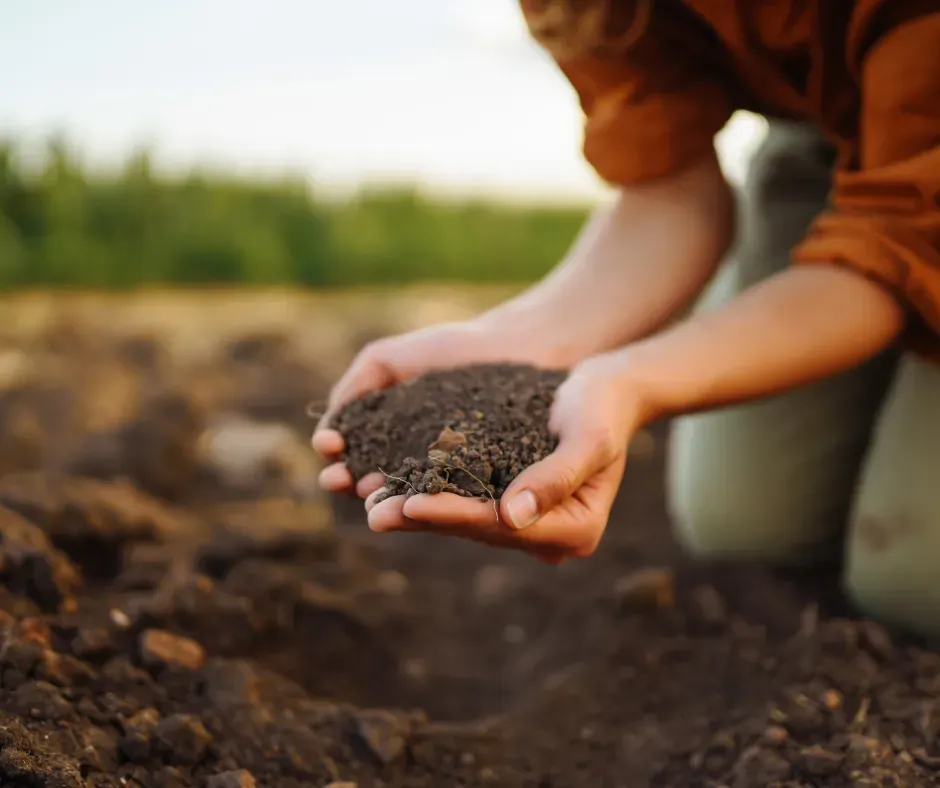
When it comes to farming and agriculture, one of the most fundamental yet often overlooked factors is soil health. The quality of your soil can have a significant impact on the success of your crops, affecting everything from yield to crop resilience and even the nutritional value of your produce. In this blog post, we will dig deeper into the topic of soil health and explore how it can influence your agricultural endeavors. The Importance of Soil Health Soil is not just a passive medium in which plants grow; it is a living, dynamic ecosystem in itself. Healthy soil is teeming with microorganisms, fungi, and a variety of organisms that interact in complex ways to support plant growth. Here are some key reasons why soil health is vital for successful crop cultivation: Nutrient Availability: Healthy soil contains a rich supply of essential nutrients that plants need to thrive. These nutrients are made available to plants through the activities of soil microbes, which break down organic matter and make nutrients like nitrogen, phosphorus, and potassium accessible to plant roots. Water Retention: Soil with good structure and organic matter content can retain water more effectively, ensuring that crops have a consistent source of moisture even during dry periods. This can be a game-changer in regions with irregular rainfall. Disease Suppression: Healthy soil is more resistant to soil-borne diseases and pests. Beneficial microorganisms in the soil can help suppress the populations of harmful pathogens, reducing the need for chemical pesticides. Improved Crop Resilience: Crops grown in healthy soil tend to be more resilient to stressors like drought, extreme temperatures, and pests. They can develop stronger root systems and better access the resources they need. Enhanced Nutritional Value: The quality of the soil can influence the nutritional content of your crops. Soil rich in minerals and organic matter can lead to more nutrient-dense produce, which is not only healthier for consumers but can also fetch higher market prices. How to Assess Soil Health Now that we understand why soil health is crucial, let's look at how you can assess the condition of your soil: Soil Testing: A soil test is a valuable tool that provides information about the nutrient levels, pH, and organic matter content in your soil. It can help you determine what amendments or treatments your soil may need. Observation: Visual cues can also provide insights into soil health. Healthy soil is often dark and crumbly, with a pleasant earthy smell. Compacted or eroded soil, on the other hand, may indicate problems. Plant Health: The health and performance of your crops can be a reflection of soil quality. Stunted growth, yellowing leaves, or increased susceptibility to pests and diseases can all be signs of poor soil health. Improving Soil Health If you find that your soil is less than optimal, don't worry—there are several strategies you can employ to improve its health: Add Organic Matter: Compost, cover crops, and organic mulches can all increase the organic matter content of your soil, improving its structure and nutrient-holding capacity. Balancing Nutrients: Based on soil test results, you can add specific fertilizers or soil conditioners to address nutrient imbalances. Reduced Tillage: Minimizing tillage can help preserve soil structure and reduce erosion. Crop Rotation: Rotating crops can disrupt pest and disease cycles and prevent the depletion of specific nutrients. Biological Amendments: Introducing beneficial microorganisms, like mycorrhizal fungi, can enhance nutrient uptake by plants and improve overall soil health. Soil health is not just a concern for large-scale agricultural operations; it's a fundamental aspect of successful gardening and farming. By understanding the importance of soil health, regularly assessing your soil, and implementing appropriate soil management practices, you can ensure that your crops thrive, providing you with better yields and healthier, more nutritious produce. So, get out there, dig a little deeper, and give your soil the attention it deserves—it will pay off in the long run.
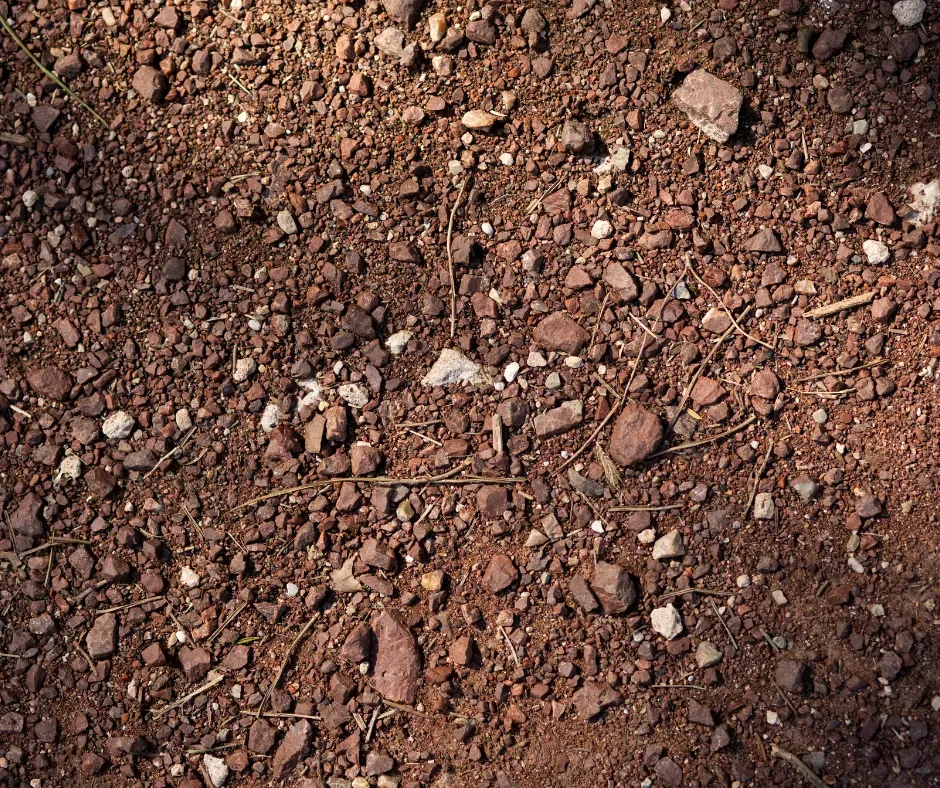
Gardening is not just a hobby; it's an art form that allows us to connect with nature and create beautiful spaces in our homes. However, the success of any garden heavily depends on the quality of its soil. If you find yourself struggling with barren or poor-quality soil, don't despair! With a little knowledge and some effort, you can transform your soil into a fertile and thriving foundation for a lush garden. In this blog, we'll explore the steps and tips to turn your barren soil into a beautiful garden oasis. Understanding Your Soil The first step in transforming your soil is to understand its composition. Different soils have varying levels of clay, sand, silt, and organic matter. You can determine your soil type by conducting a simple soil test. Knowing your soil type will help you make informed decisions about how to improve it. Conduct a Soil Test: Collect soil samples from different areas of your garden. Use a soil testing kit or send the samples to a local agricultural extension office for analysis. The test results will provide information on your soil's pH, nutrient levels, and texture. Improving Soil Texture Once you know your soil type, you can work on improving its texture. The ideal garden soil is loamy, which means it has a balanced mixture of sand, silt, and clay. If your soil is too sandy, it drains too quickly, while clay soil retains too much moisture. Here's how to amend your soil accordingly: Add Organic Matter: Incorporate organic matter like compost, well-rotted manure, or leaf mulch into your soil. Organic matter improves soil structure, aeration, and moisture retention. Adjust Soil pH: Lime can be added to raise pH if your soil is too acidic, or sulfur can be used to lower pH if it's too alkaline. Most plants thrive in a slightly acidic to neutral pH range. Combat Soil Compaction: Use aeration techniques like tilling or aerating to break up compacted soil and improve root penetration. Nutrient Enhancement Healthy soil is rich in essential nutrients that plants need to grow and flourish. If your soil lacks these nutrients, your garden will struggle to thrive. Here's how to enhance soil fertility: Apply Fertilizers: Choose a balanced, slow-release fertilizer to provide essential nutrients over time. Follow recommended application rates to avoid over-fertilization. Crop Rotation: Rotate your crops each season to prevent nutrient depletion in the soil. Different plants have varying nutrient needs, and rotation helps maintain soil fertility. Mulch: Use mulch to cover the soil's surface to retain moisture, suppress weeds, and gradually release nutrients as it decomposes. Transforming your barren soil into a beautiful garden soil may take time and effort, but the results are well worth it. With the right knowledge and proper care, you can turn even the most unproductive soil into a fertile paradise for your plants. Remember that gardening is a journey, and your soil will continue to improve with consistent care and attention. So, roll up your sleeves, get your hands dirty, and watch your garden transform from barren to beautiful. Happy gardening!
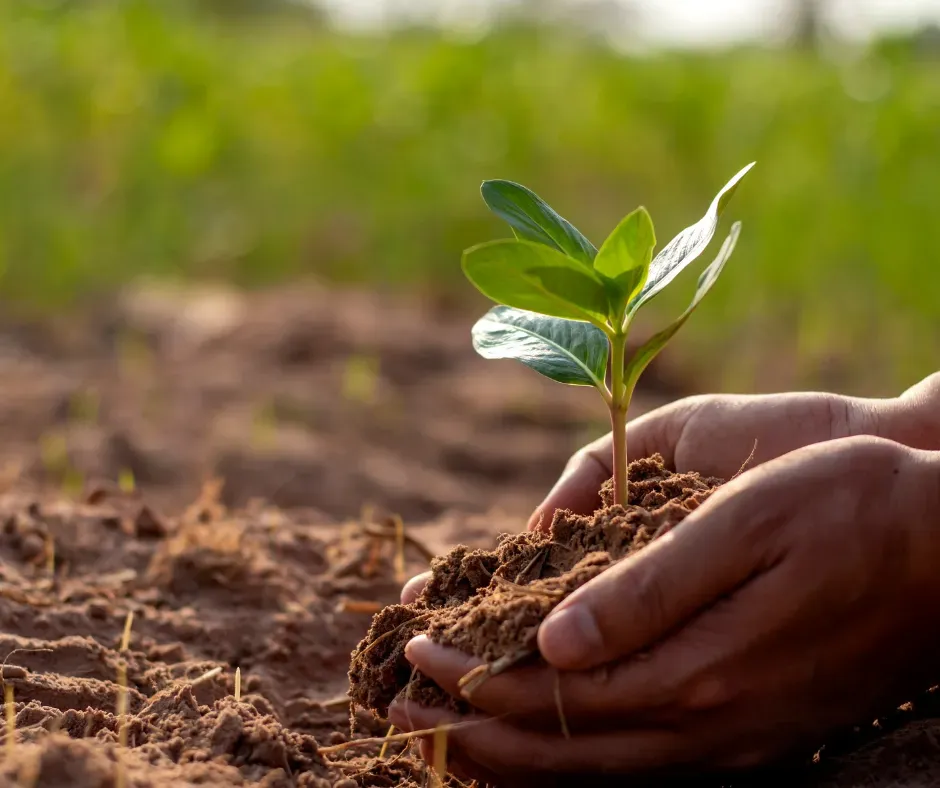
Gardening is a deeply rewarding and therapeutic activity that allows us to connect with nature and cultivate our little pieces of paradise. Whether you're a seasoned gardener or just starting, one of the fundamental keys to success lies beneath the surface—healthy soil. In this guide, we will unlock the secrets of healthy soils and provide you with valuable insights to help your garden thrive. The Importance of Healthy Soils Before we dive into the secrets of nurturing healthy soils, let's understand why it's so crucial for your garden's success. Healthy soils provide essential nutrients, support plant roots, retain moisture, and promote beneficial microorganisms. In contrast, poor soil quality can lead to stunted growth, reduced yields, and increased susceptibility to pests and diseases. Assessing Your Soil The first step in unlocking the secrets of healthy soils is to assess the condition of your garden's soil. You can do this by: Texture Test: Squeeze a handful of soil when it's slightly moist. If it forms a ball, it's clayey; if it crumbles, it's sandy; and if it's somewhere in between, it's loamy. pH Testing: Use a pH testing kit to determine if your soil is acidic (pH < 7), neutral (pH = 7), or alkaline (pH > 7). Different plants thrive in different pH ranges, so knowing your soil's pH is crucial. Observation: Pay attention to the plants currently growing in your garden. Are they healthy and vibrant, or do they seem to struggle? This can provide valuable clues about your soil's condition. Soil Amendments Once you've assessed your soil, it's time to improve it. Here are some common soil amendments to consider: Compost: Adding compost enriches the soil with organic matter, improves soil structure, and enhances its water-holding capacity. Mulch: Mulching not only conserves moisture but also helps regulate soil temperature and reduces weed growth. Organic Matter: Incorporating organic matter like leaf litter, straw, or well-rotted manure can boost nutrient levels and support beneficial soil organisms. Minerals: If your soil lacks specific nutrients, you can add mineral-based amendments like lime for acidity or sulfur for alkalinity. Crop Rotation and Cover Crops Crop rotation is a smart gardening practice that helps prevent soil depletion and pest build-up. By planting different crops in succession, you can minimize nutrient imbalances and reduce the risk of diseases and pests targeting specific plants. Cover crops are another valuable tool in the gardener's toolkit. These crops, like clover or rye, are grown not for harvest but to protect and enrich the soil during periods when your main crops aren't growing. They prevent soil erosion, add organic matter, and enhance soil fertility. Avoiding Soil Compaction Heavy machinery, foot traffic, and even frequent watering can lead to soil compaction, which restricts root growth and hinders water infiltration. To avoid this, practice good soil management techniques such as using raised beds, avoiding walking on planting areas, and being mindful of when and how you water. Testing and Monitoring Regular soil testing is essential to ensure your garden's soil remains healthy over time. It helps you identify any nutrient deficiencies or imbalances and adjust your amendments accordingly. Many gardening centers offer soil testing services, or you can purchase DIY test kits. Healthy soils are the foundation of a successful garden. By assessing your soil, amending it with the right materials, practicing crop rotation and cover cropping, avoiding soil compaction, and monitoring its condition, you can unlock the secrets to nurturing a thriving and bountiful garden. Remember that healthy soils not only benefit your plants but also contribute to a more sustainable and vibrant ecosystem in your backyard. So, roll up your sleeves, get your hands dirty, and enjoy the satisfaction of gardening with healthy soil as your secret weapon. Happy gardening!

